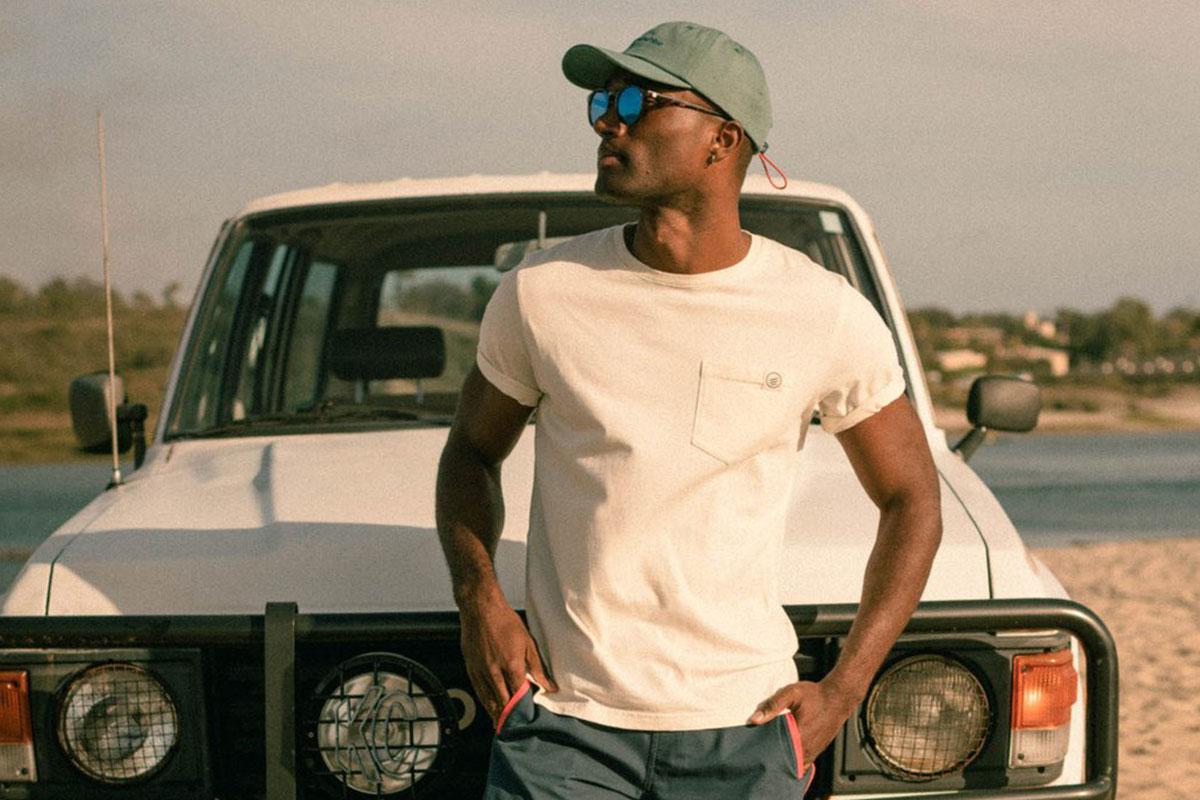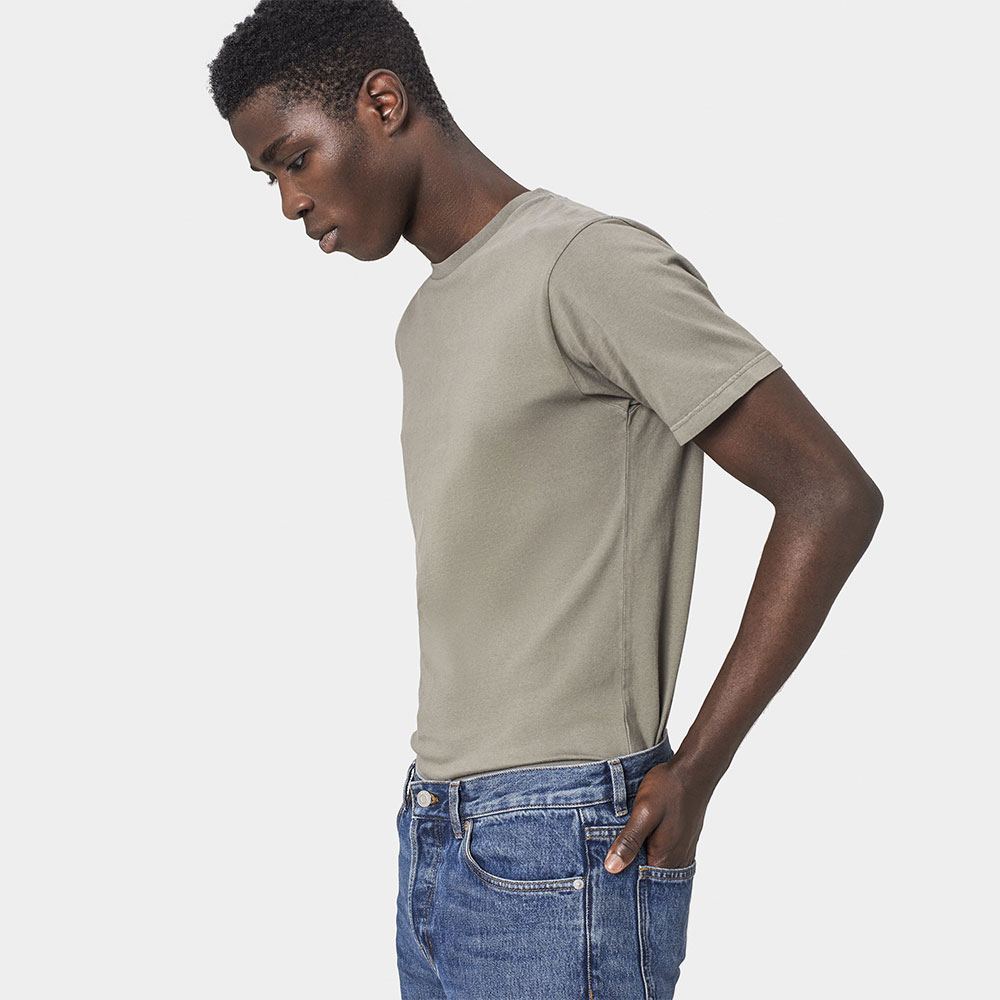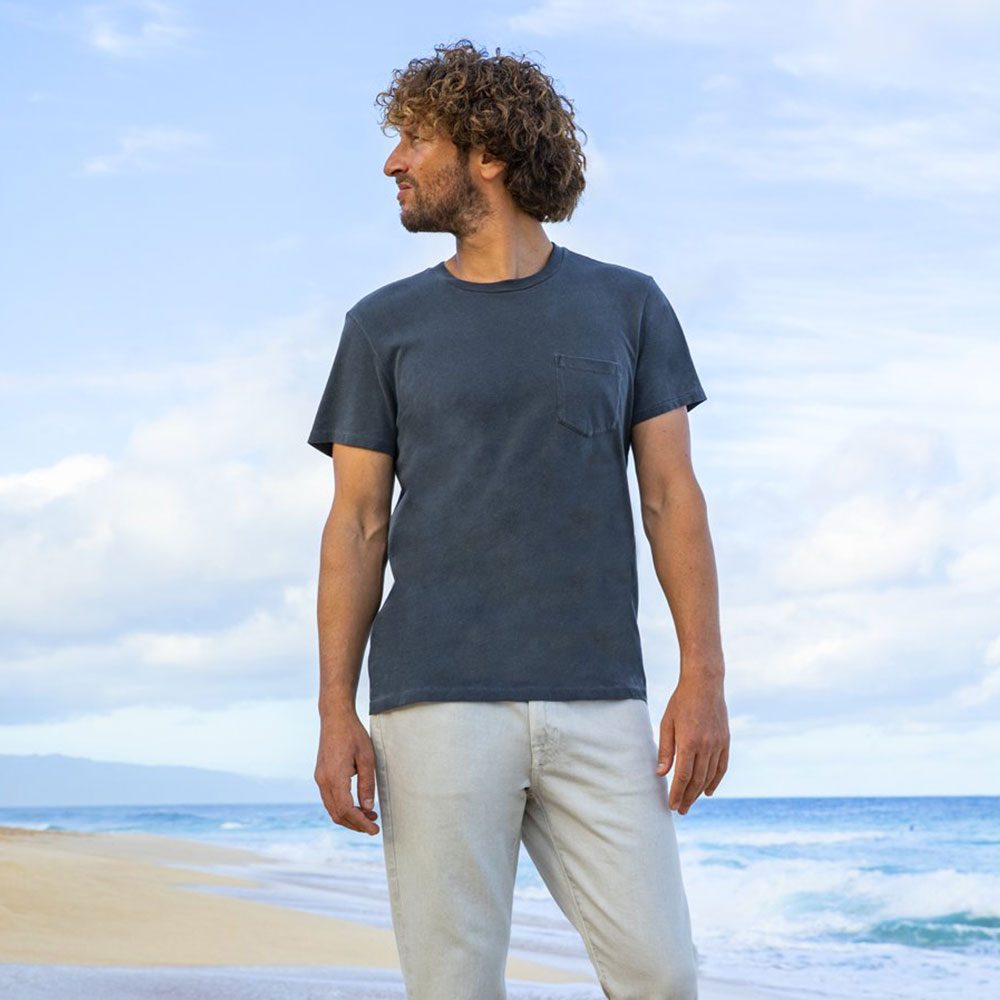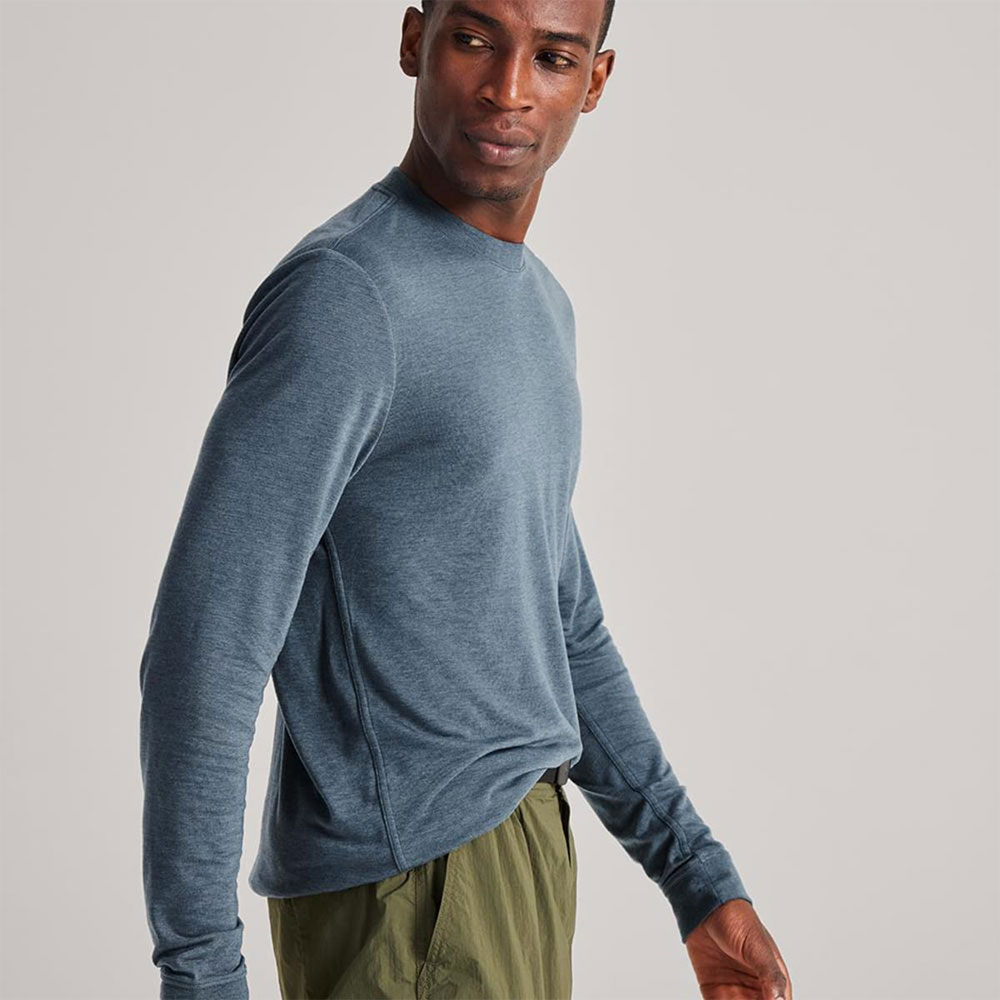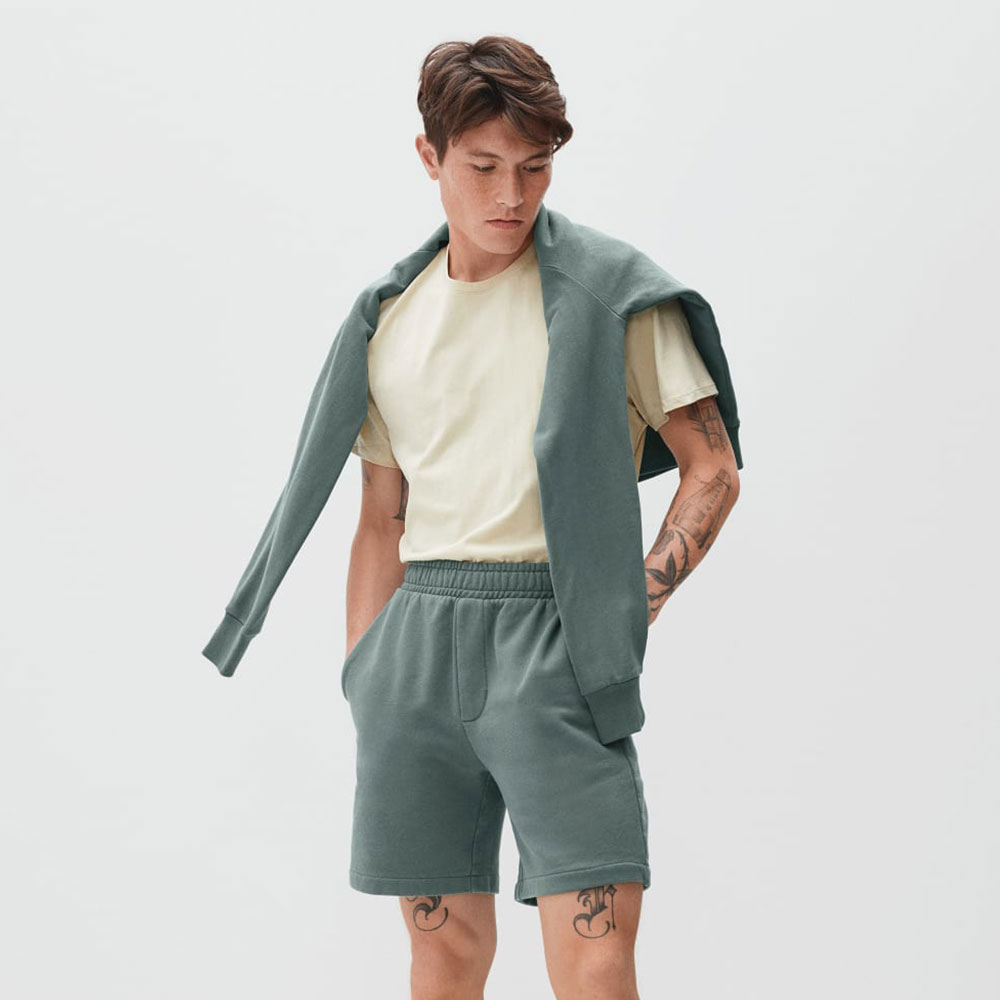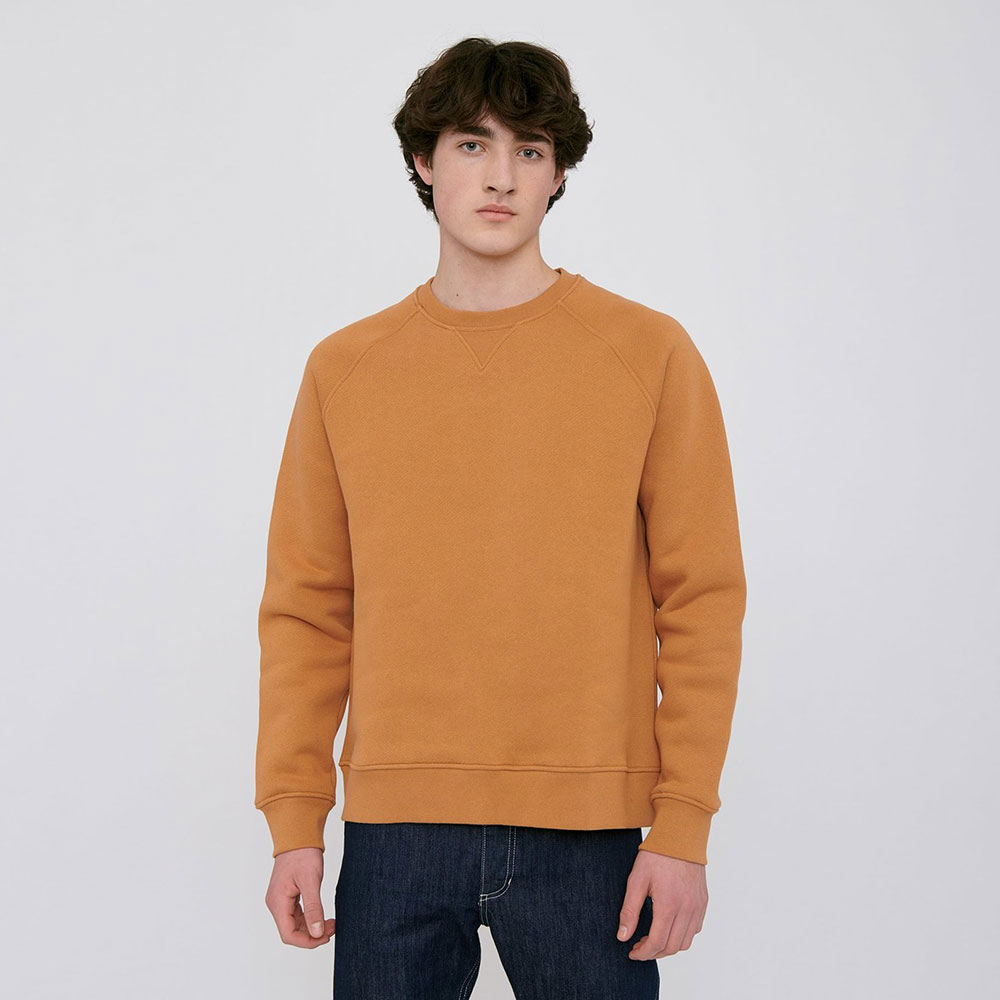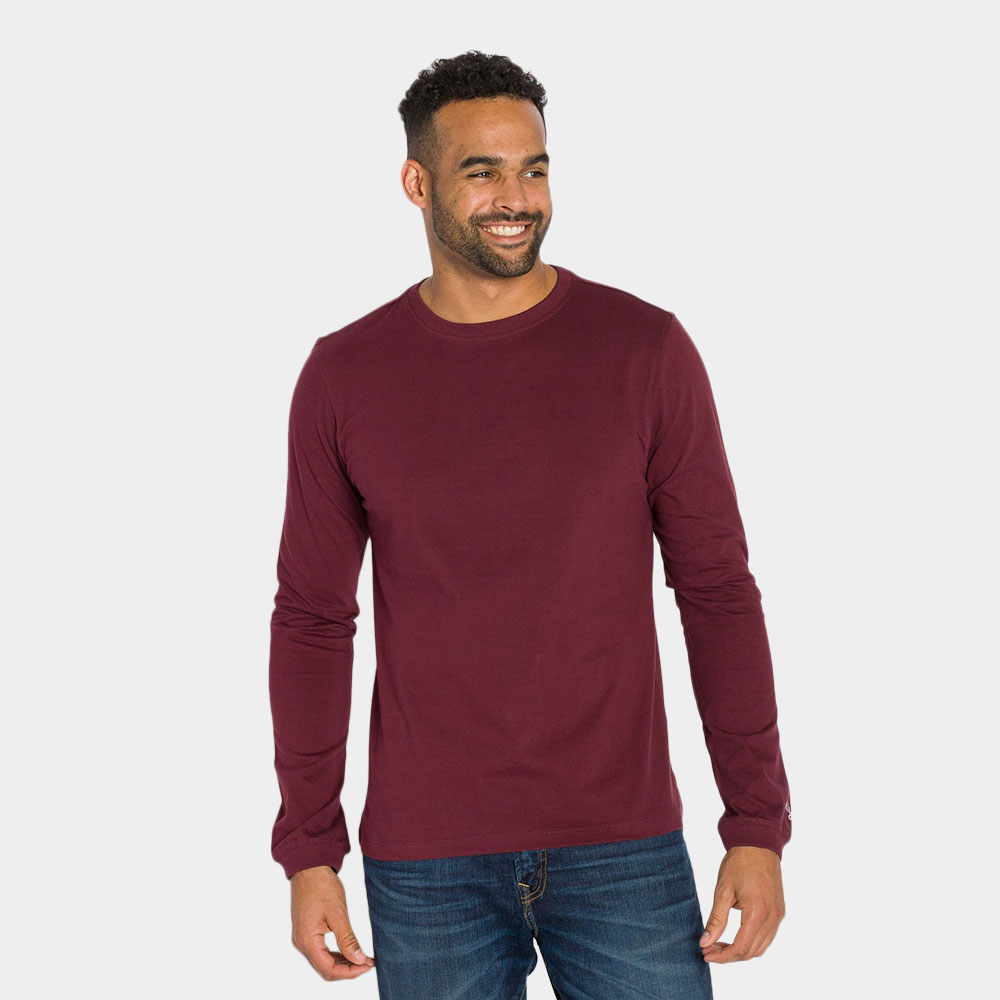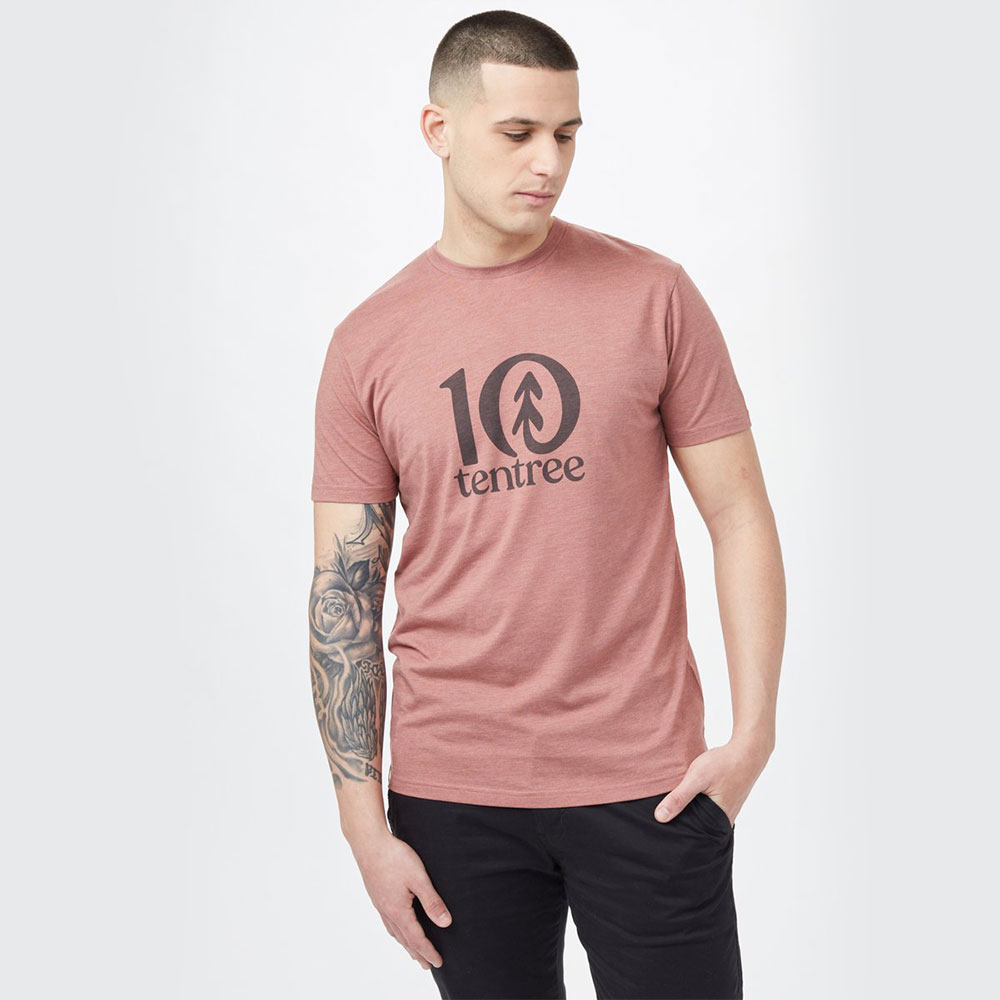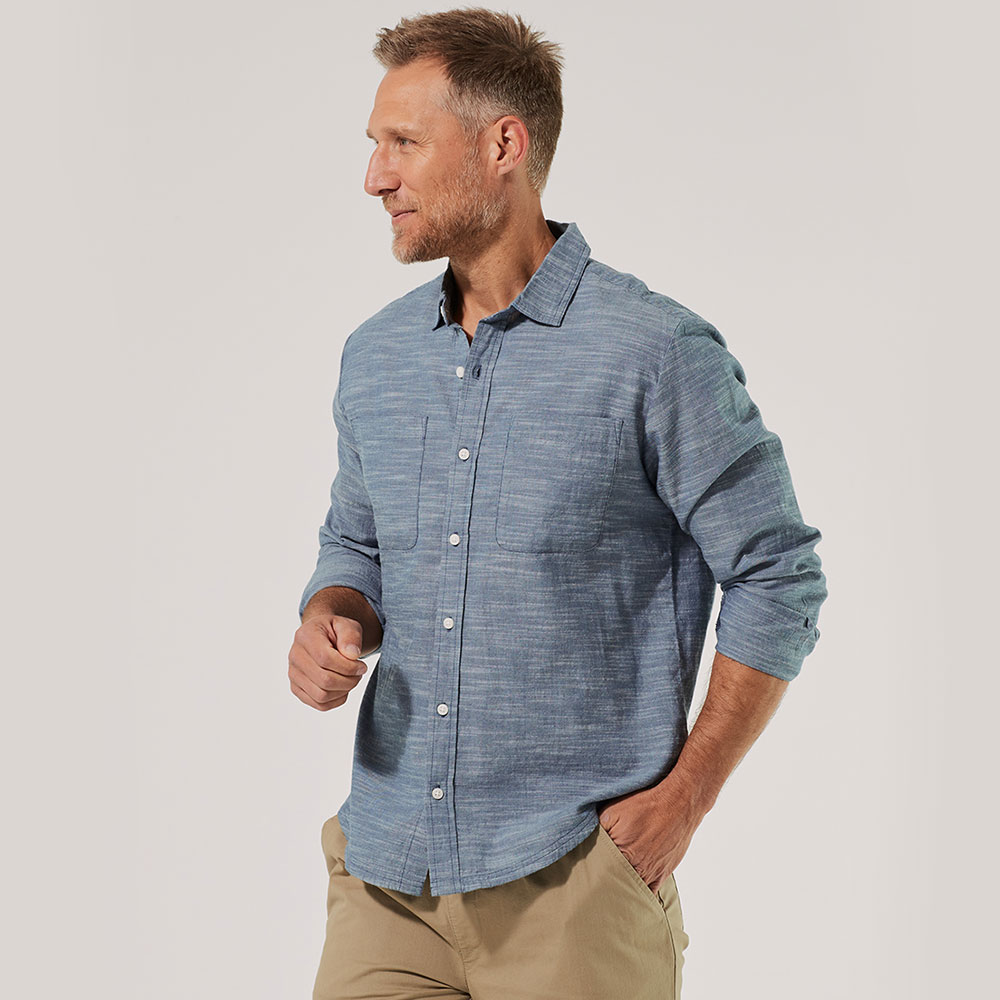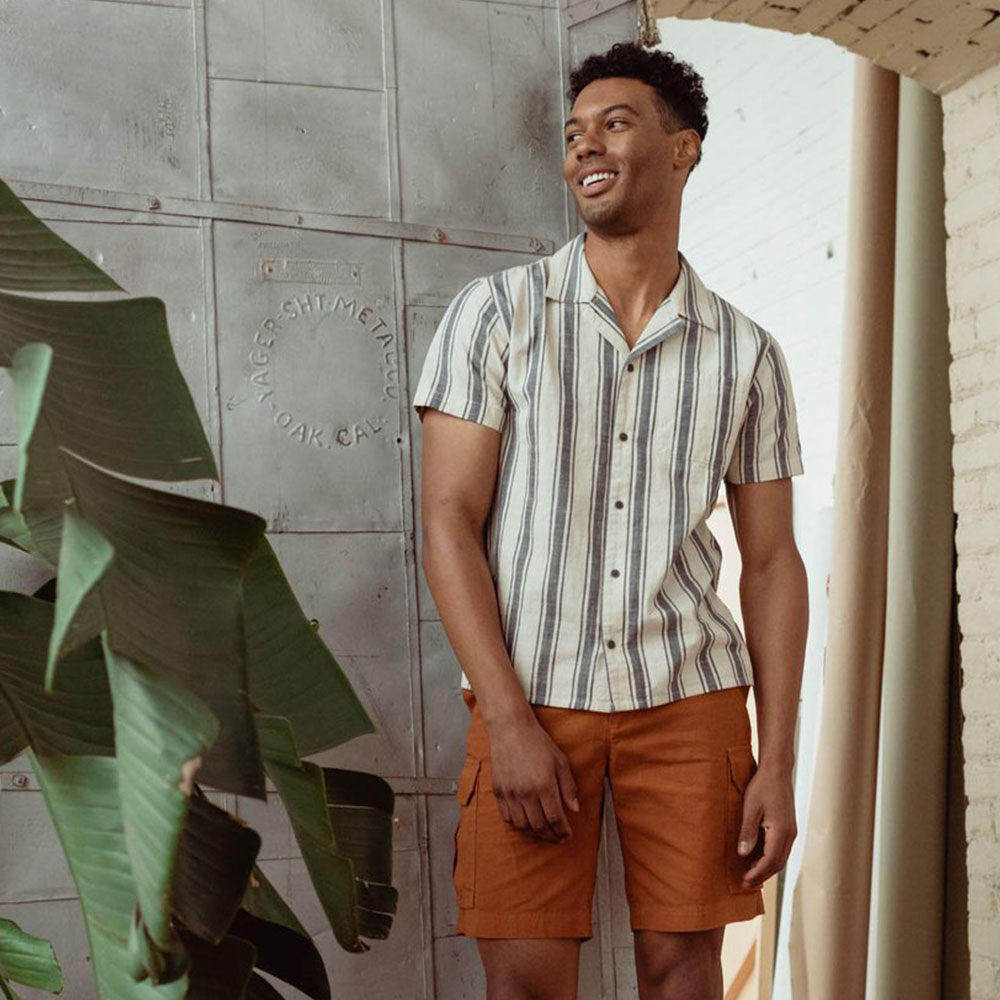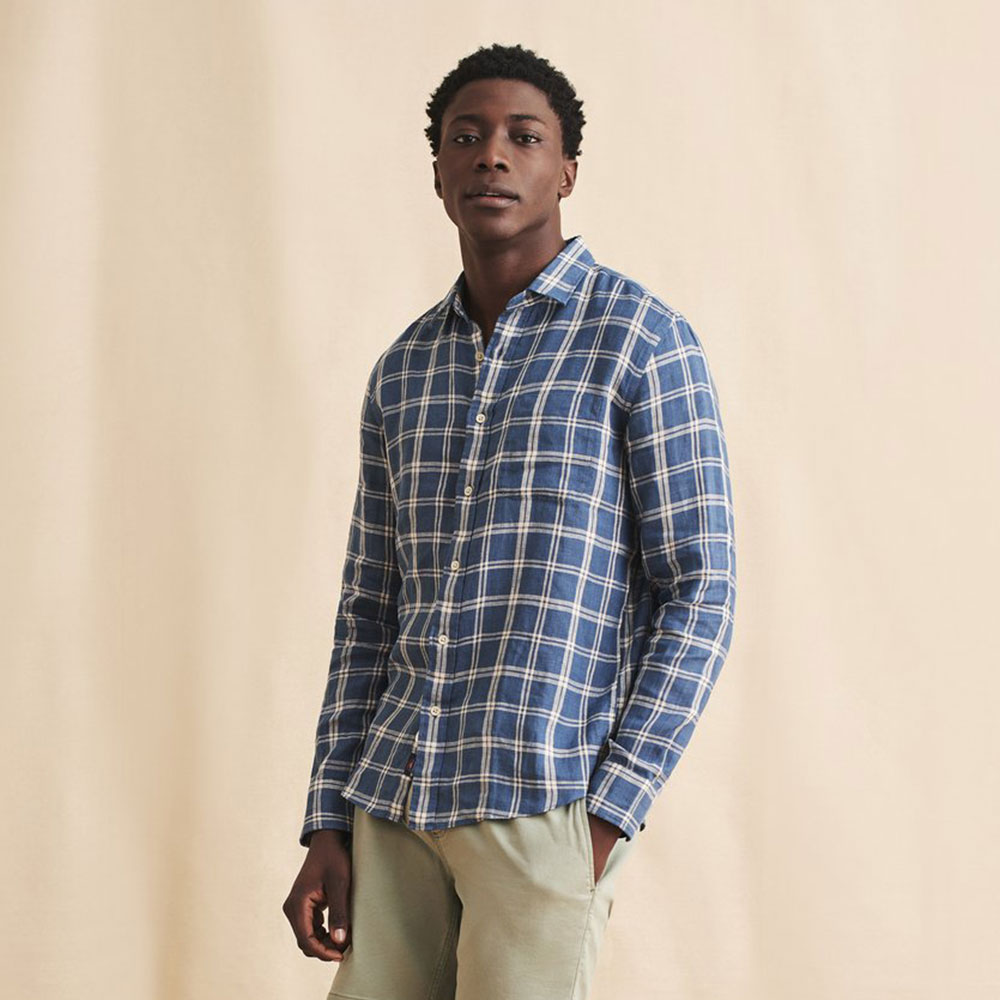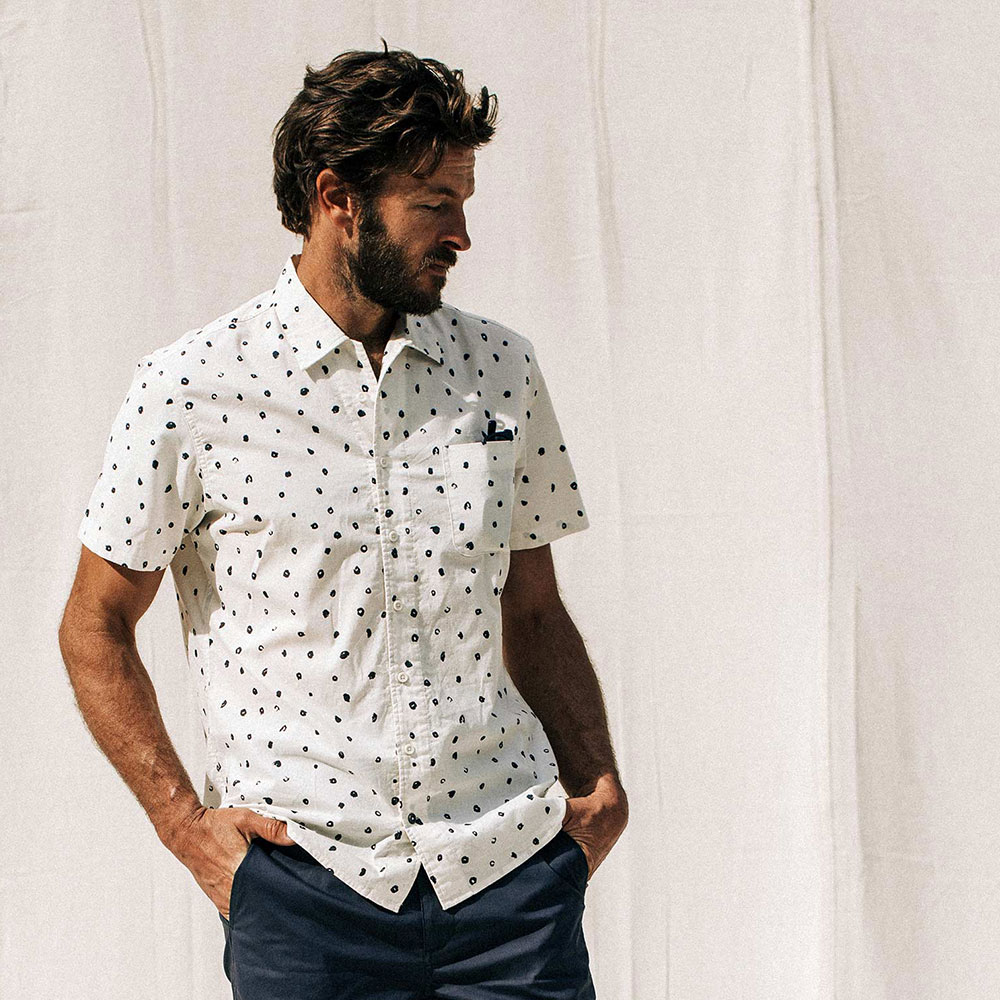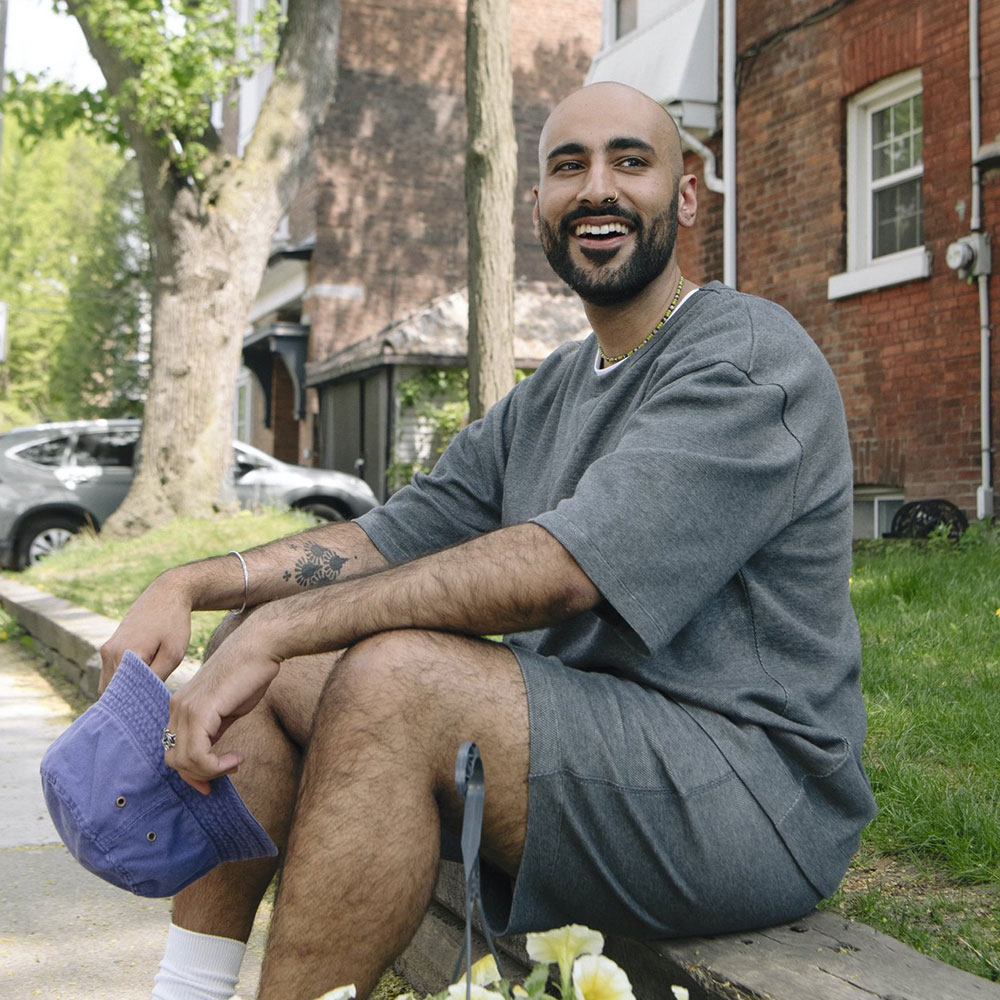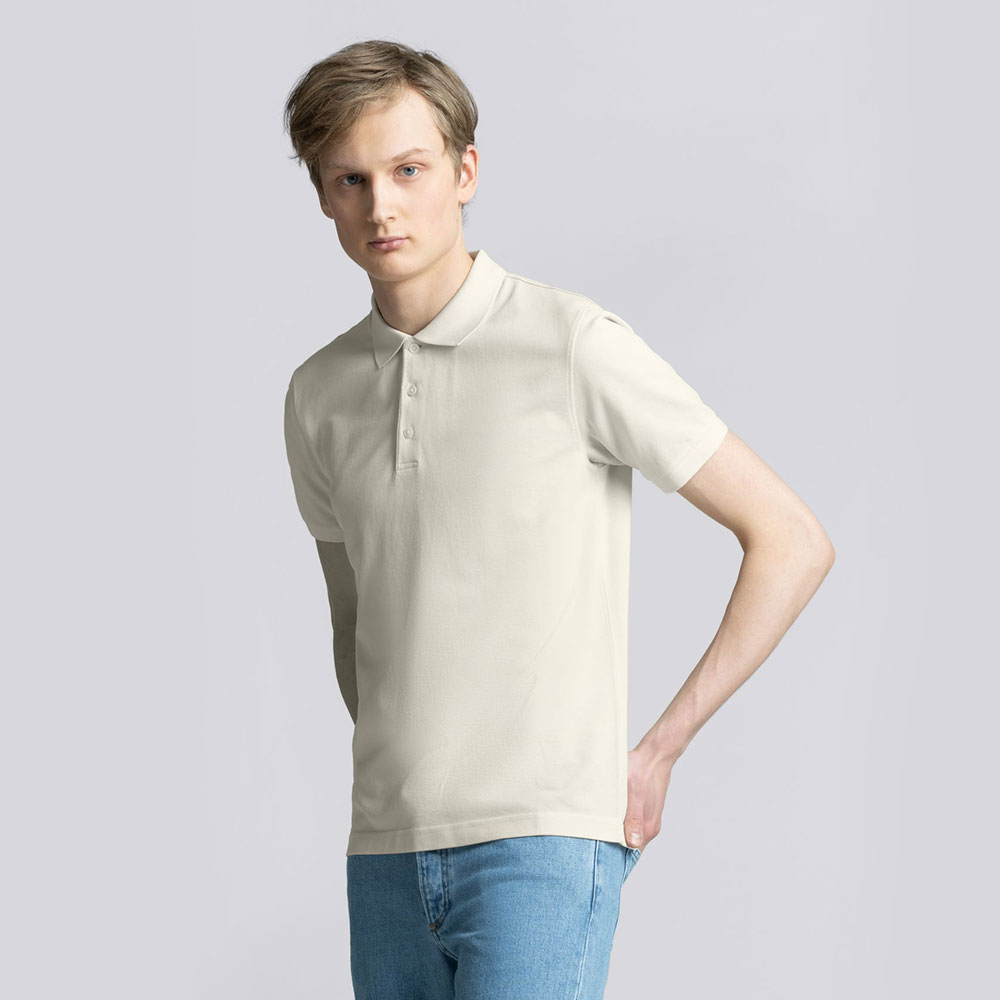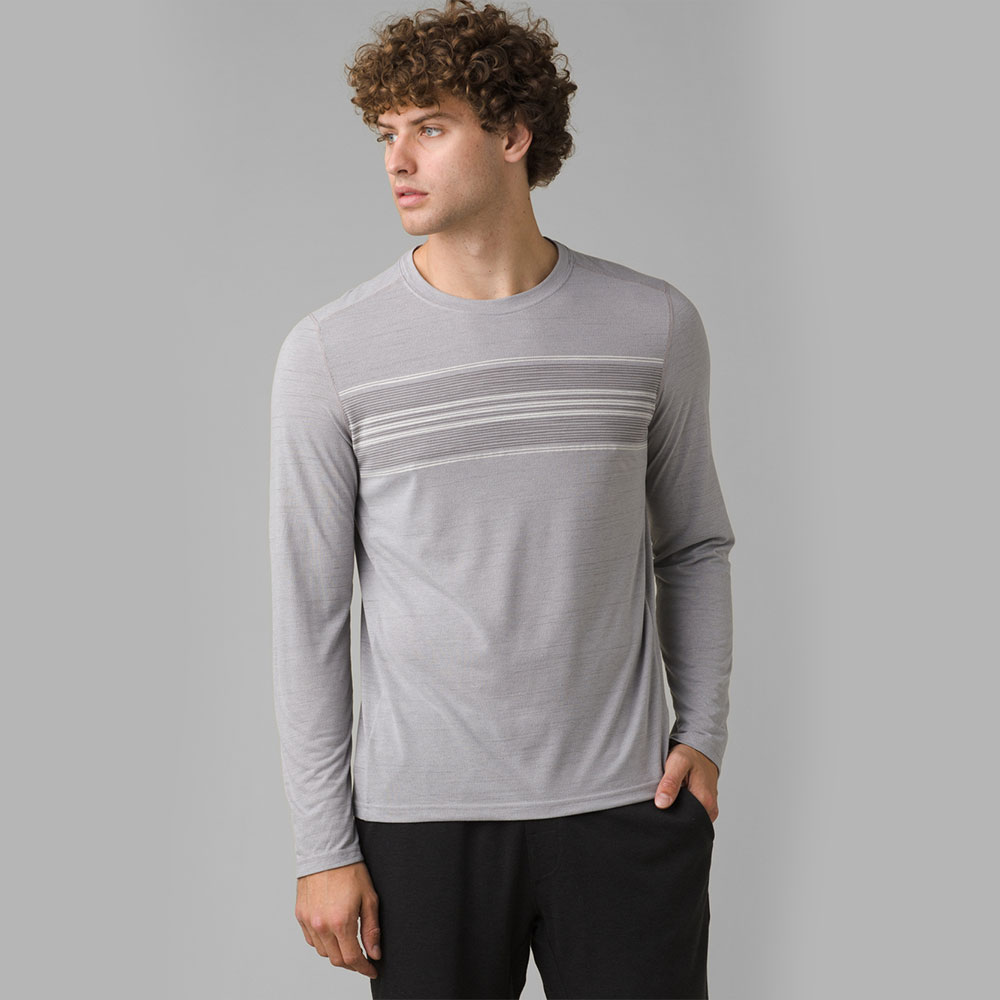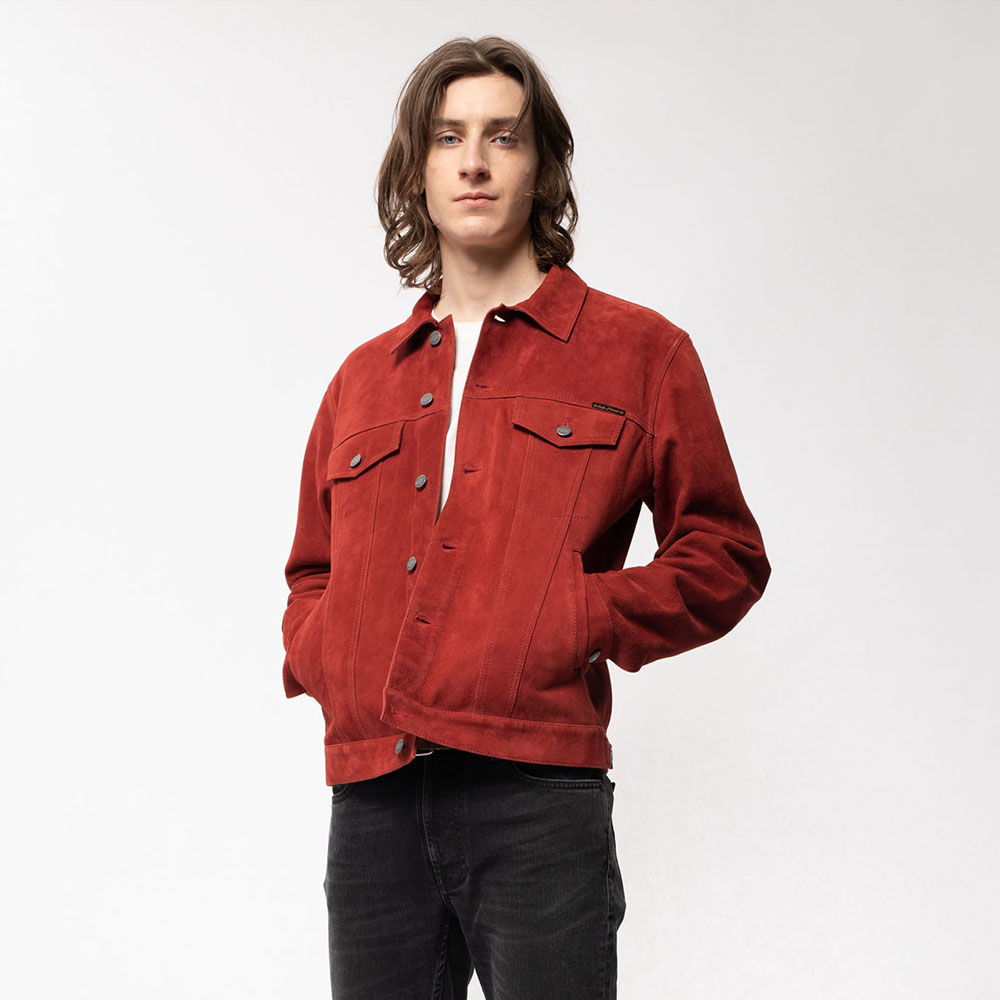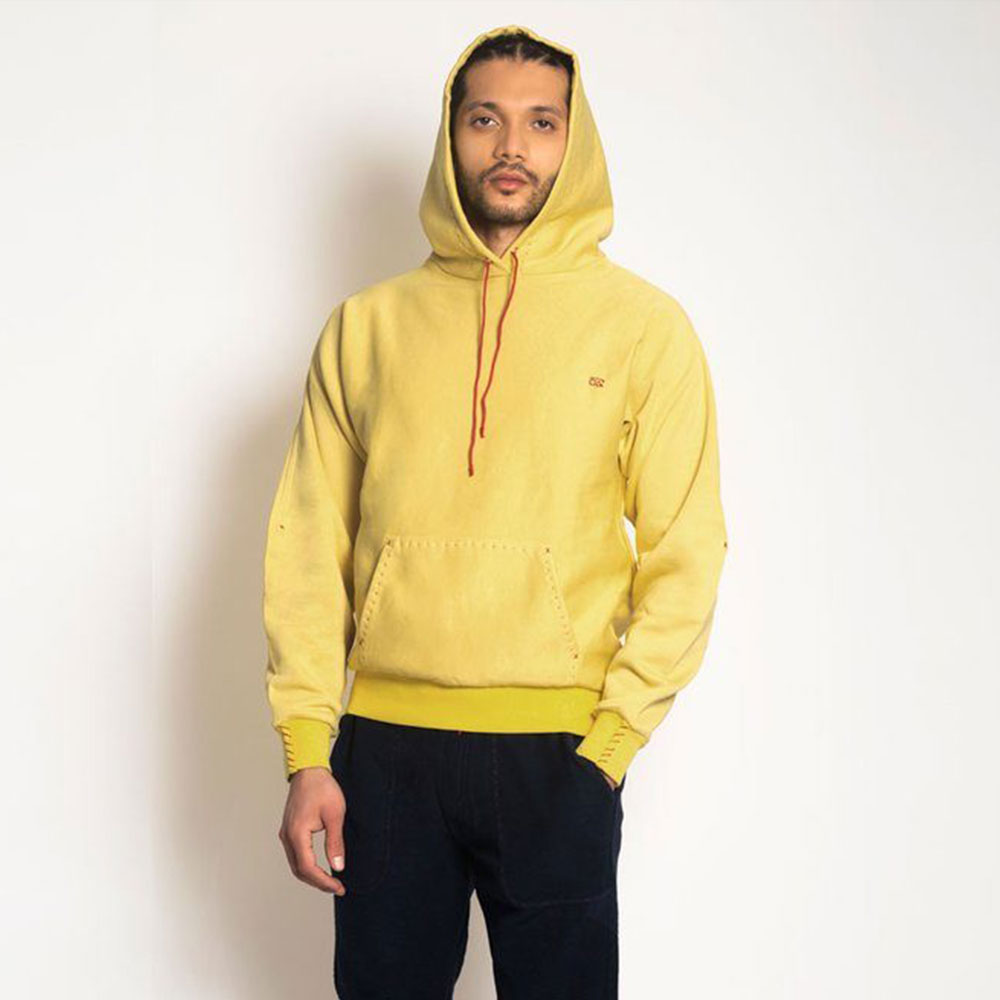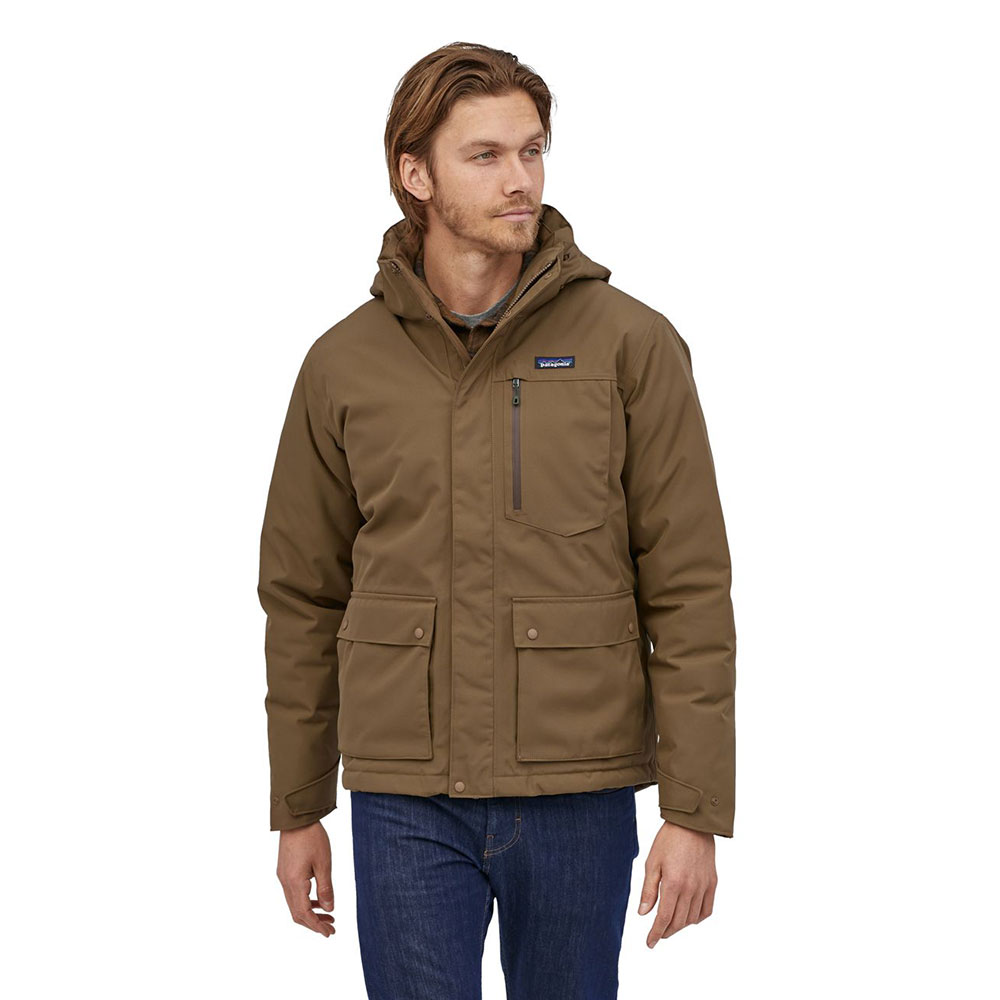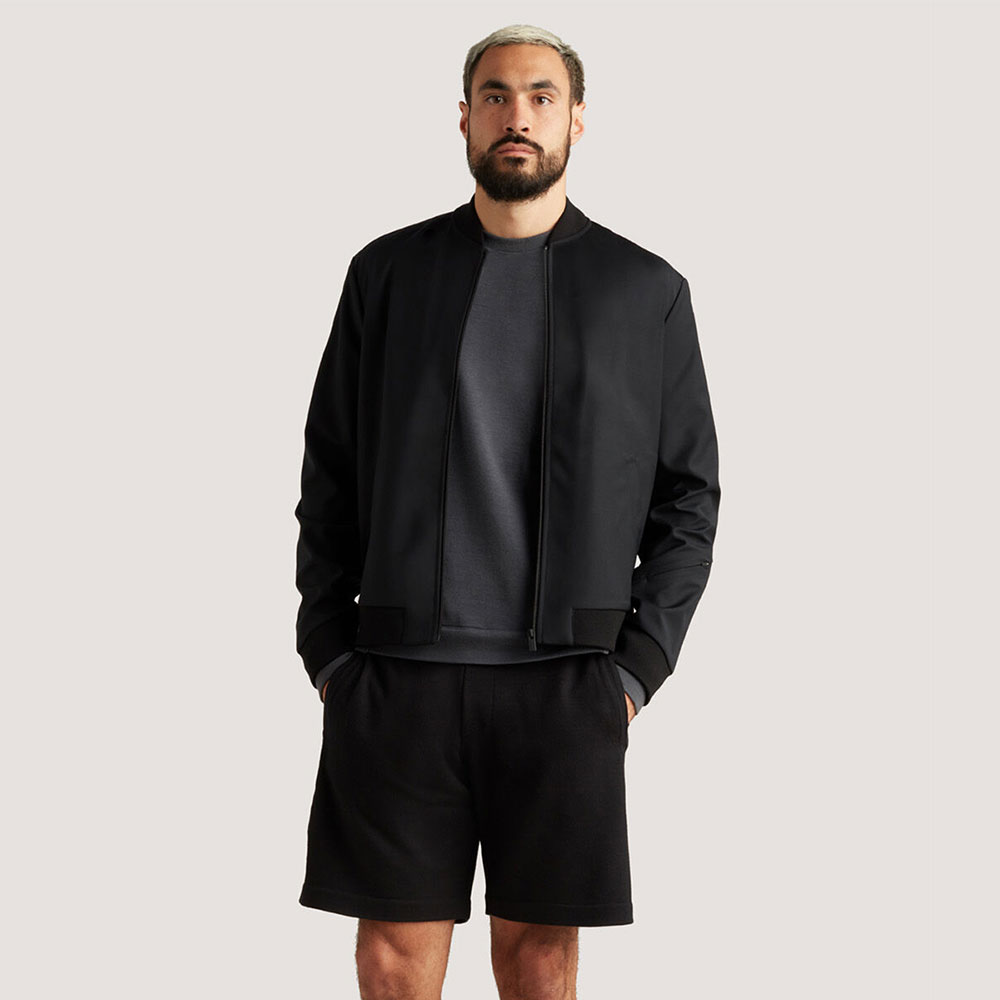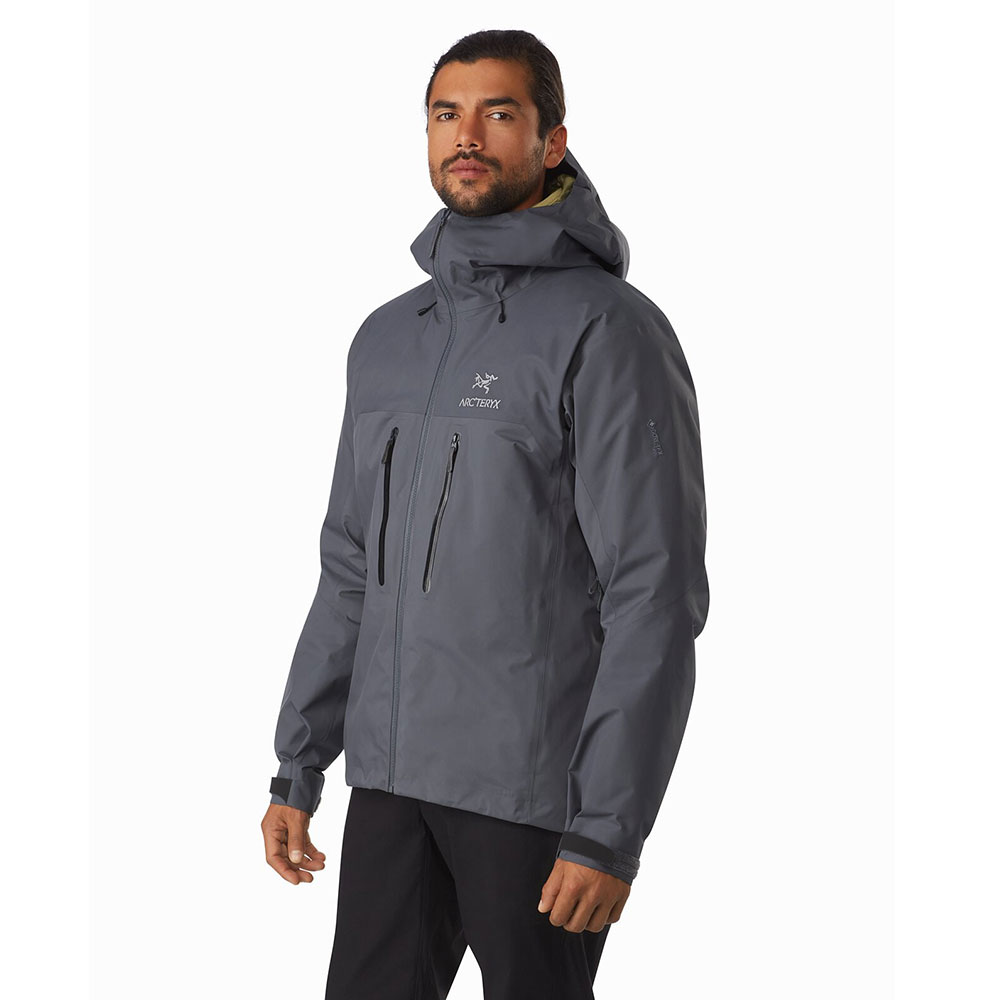The fashion industry is one of the biggest polluters in the world, with the apparel industry accounting for ten percent of all global carbon emissions. With an overly saturated market of fast fashion, people are buying more than ever when it comes to clothing, and wearing it for fewer periods of time, meaning more and more clothes are ending up in landfill. And not to mention, the huge amounts of energy and water that are wasted to make clothes, as well as the huge CO2 emissions the fashion industry produces each year.
With climate change threatening our planet and our very existence, it’s more imperative than ever to make more sustainable and ethical choices when it comes to fashion. This means buying less, and when you do buy, buying garments that’ll last for years and that have been made with renewable and natural fabrics.
But it can be hard to know what brands to trust, as ‘sustainable’ has become a bit of a buzzword that many fashion brands are adapting into their vocabulary. Therefore, we’ve researched what brands are truly producing sustainable products and are dedicated to reducing their environmental impact in more than one way.
Sustainable clothing can be crafted from a variety of materials, with the most common being organic cotton. However, natural fibres and recycled fibres can also be used. Sustainable clothing is also usually made with less energy and water than traditional clothing-making methods.
If you’re looking for ways to help our environment, the next time you need new clothes, purchase from one of the following sustainable brands that produce eco-friendly and ethical fashion through fair labour practices.
Colorful Standard
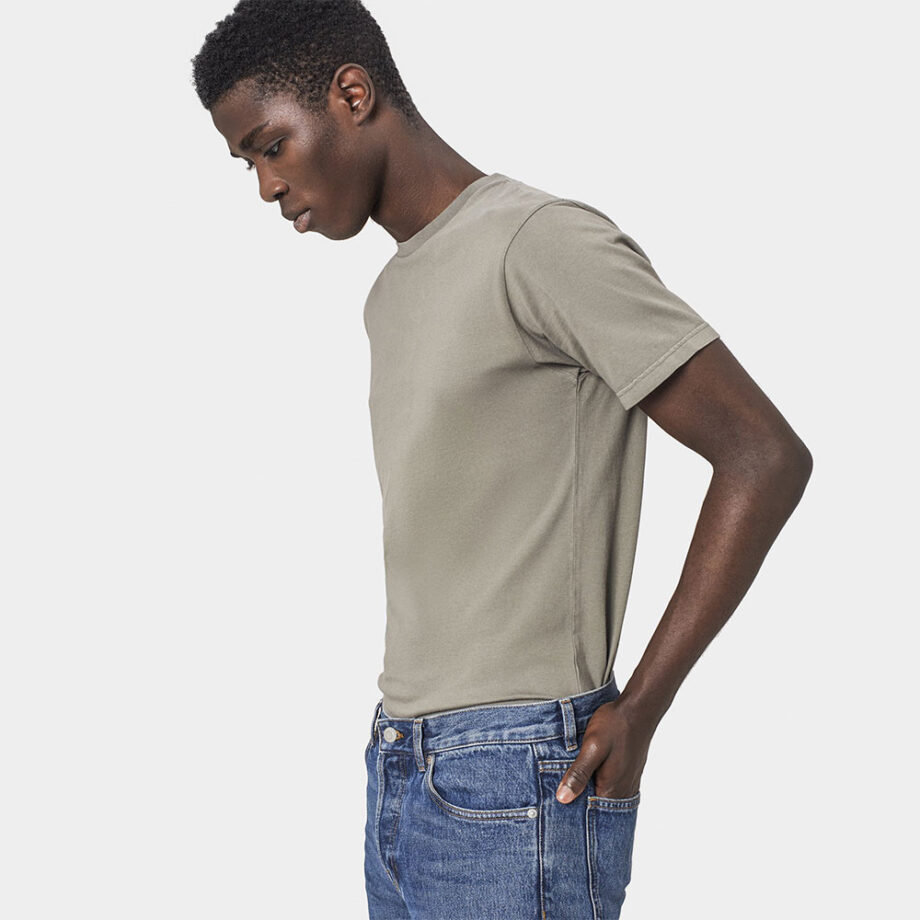 1/19
1/19
Committed to zero waste, Colorful Standard is a sustainable clothing brand that was founded in 2017. Completely transparent about their entire process, one of Colorful Standard’s main goals is to hold the fashion industry to a higher standard; therefore, the production of their garments no longer risks the health of the workers or of the environment.
Colorful Standard created a regenerative concept of long-lasting products made ethically and vertically integrated at their in-house manufacturing center. The brand uses only sustainable materials, environmentally friendly dye, and recycled FSC packaging for their products, and has ethical labour practices in place.
All of Colorful Standard’s clothing is made with either 100% cotton or extra fine merino wool, and are pre-washed to ensure minimal shrinkage and loss of colour, meaning their garments will last you for years to come. Colorful Standard stocks every type of wardrobe basic you could need – t-shirts, shirts, hoodies, shorts, sweatpants, boxers, socks, – in 45 beautiful colours that have been inspired by the natural environments around us.
Outerknown
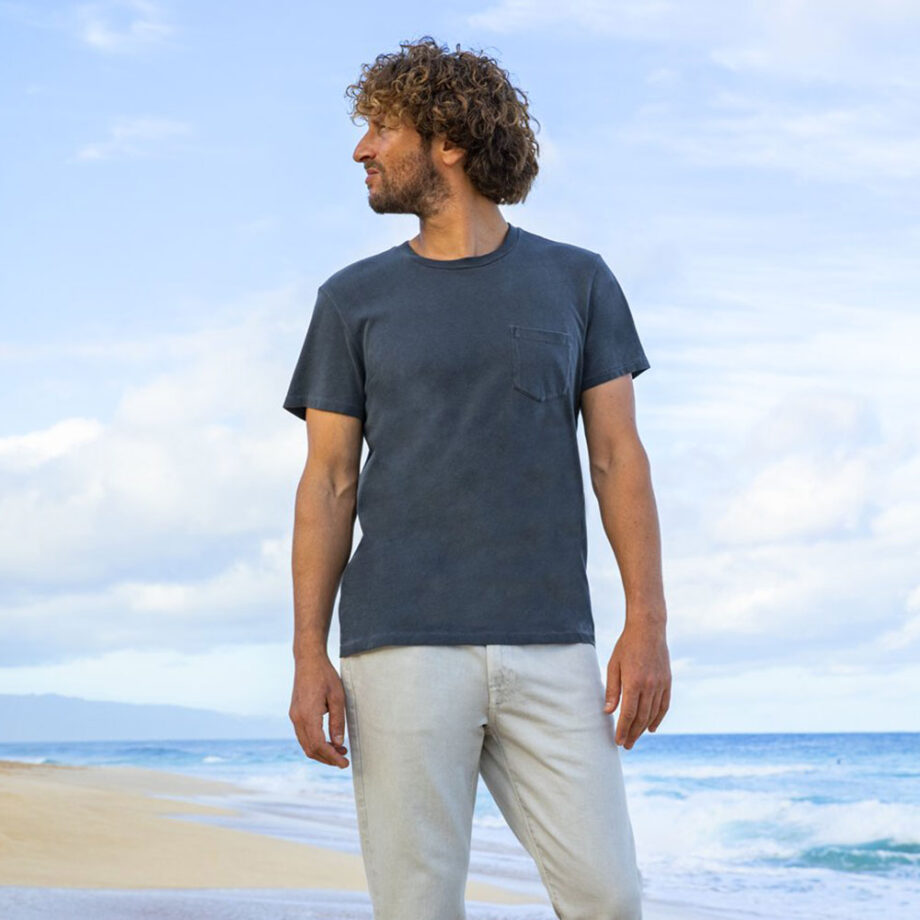 2/19
2/19
World champion surfer, Kelly Slater founded Outerknown in 2014; a brand rooted in environmental sustainability. Outerknown walks the fine line between function, style, & sustainability, and the result is stylish clothing that’s created with long-lasting materials and in a way that both protects our natural resources & provides fair wages to factory workers.
Ninety percent of the fibers Outerknown sources and uses for their clothing are organic, recycled, or regenerated. And they’re committed to eventually reaching one hundred percent. Plus, all of their jeans come with a lifetime guarantee, meaning Outerknown will repair, replace, or recycle worn and/or torn jeans so that they don’t end up in landfill. Outerknown is also accredited by the Fair Labour Association; they hold brands to the highest international labor standards.
Most of Outerknown’s clothing has a laid-back, beachy aesthetic (which is no surprise with a surfer at the helm), although they do have some seriously stylish smart-casual pieces. Their range includes swimming trunks, tees, shirts, polos, shorts, pants, jeans, sweats, and outerwear.
Allbirds
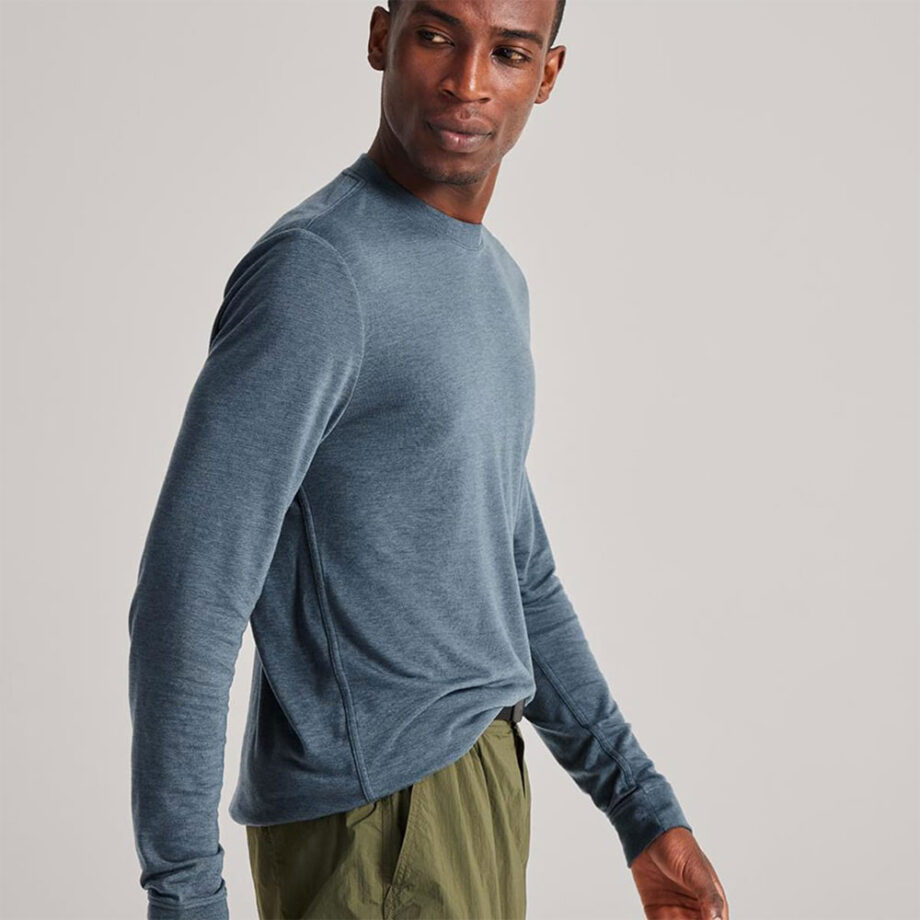 3/19
3/19
New Zealand-American company, Allbirds is dedicated to creating eco-friendly clothing and footwear made from entirely sustainable resources. The brand plans to cut their footprint in half by 2025, and then reduce it to near zero by 2030. In the meantime, Allbirds is 100% carbon neutral and only uses natural renewable fabrics for their products, such as wool, trees, sugar, and trino.
Allbirds is seriously committed to regenerative agriculture (shifting how they farm to draw carbon from the atmosphere), renewable materials, responsible energy (using less and cleaner fuel and electricity), and complete transparency; Allbirds’ process and future plans are openly available on their website and the brand encourages for the public to keep them and other brands accountable.
Allbirds doesn’t have a large range of clothing, as the brand is primarily a footwear brand, but they do have high-quality t-shirts, sweaters, jackets, underwear, and socks that are all comfortable and made in an ethical and sustainable way.
Everlane
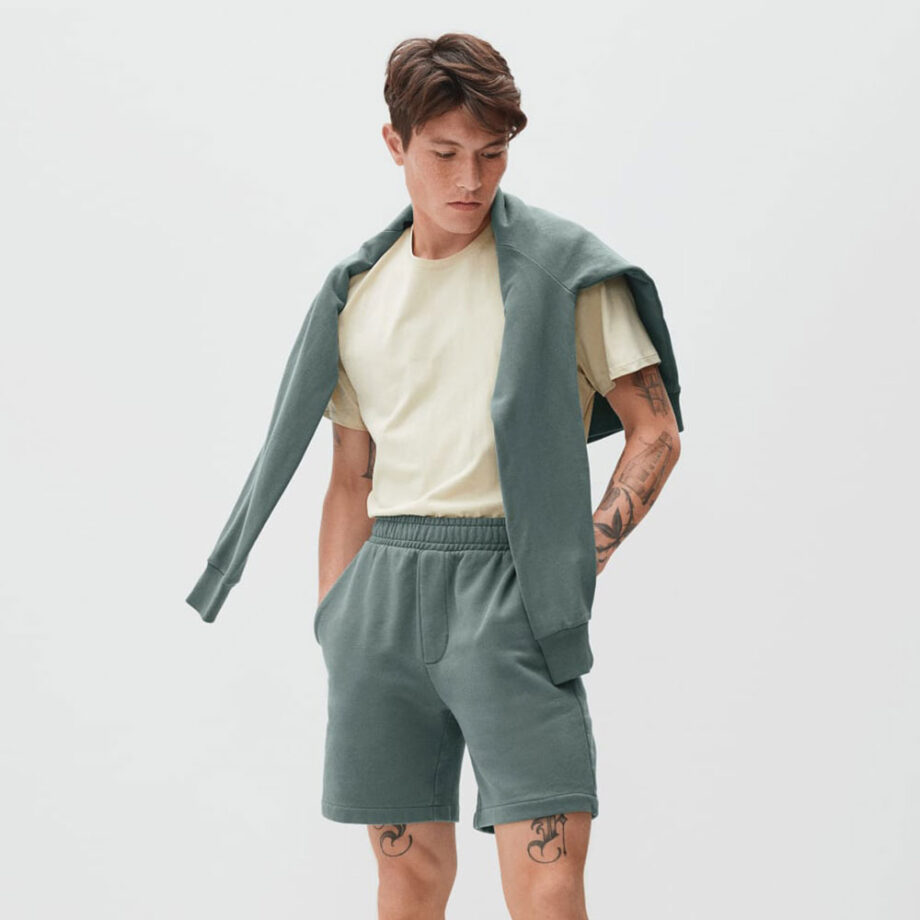 4/19
4/19
Everlane prides itself on exclusively partnering with ethical factories and using only the finest sustainable materials for their products; they call it “Radical Transparency”. Therefore, you get quality clothes that will last for years to come, with an added bonus of feeling good about supporting a company that strongly advocates for fair wages, fair trade, and working conditions.
Everlane carefully considers their materials and works with their production partners to reduce waste, chemicals, and plastics that endanger the planet’s ecosystems. Everlane strives to use the most sustainable materials from farm to factory, and invests in new fabric innovations to ensure they’re reducing the fashion industry’s impact on the planet. Everlane is also committed to providing fair wages, labor conditions, reasonable hours, and a safe work environment, to all of their employees and factory workers .
The brand has a huge range of men’s clothing that includes elevated basics like t-shirts, hoodies, sweatshirts, and sweatpants, and stylish smart casual pieces like chinos, shirts, polos, and even suit jackets & trousers.
Organic Basics
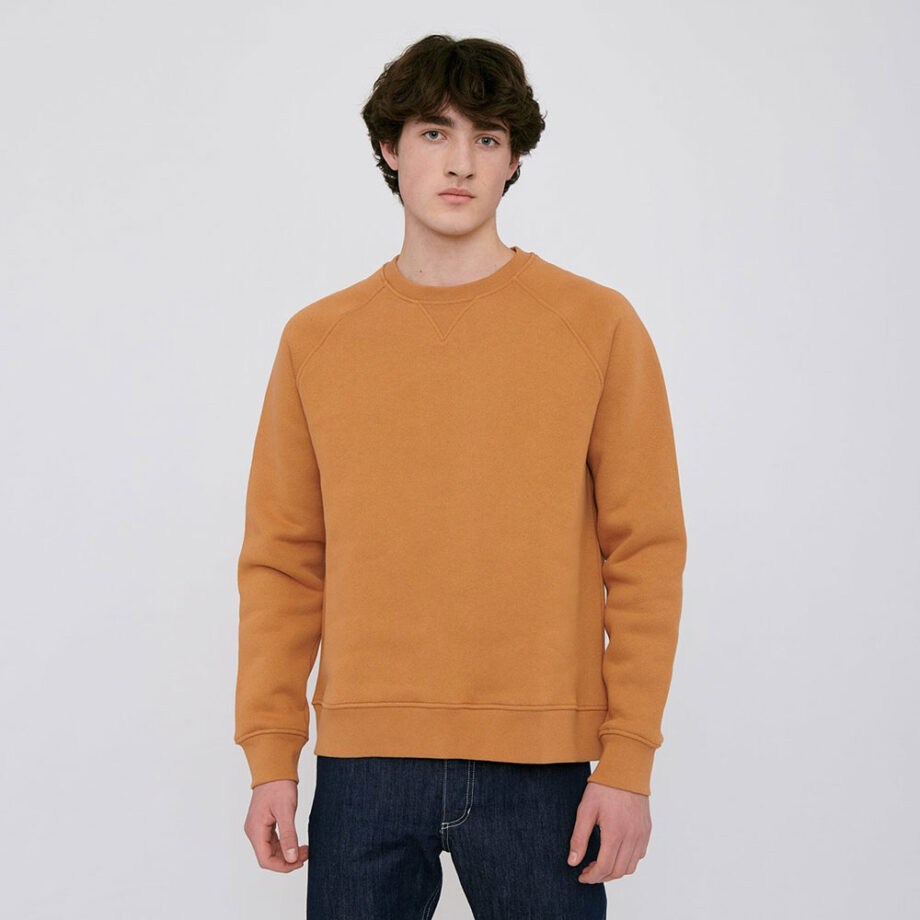 5/19
5/19
By putting sustainable thinking at the center of everything they do, Organic Basics, founded in 2015, is one of the most sustainable fashion brands on the market. Organic Basics only uses fabrics that are natural, renewable, recycled, biodegradable and/or low-impact, and their number one rule is ‘design everything to last’. That means investing in quality fabrics and workmanship – but it also means designing with simplicity and function in mind.
Organic Basics also only work with trusted, certified factory partners who are equally committed to reducing their environmental footprint. Plus, Organic Basics is also dedicated to only partnering with factories that ensure their workplace is free of child labour and forced labour, and that their workers are surrounded in a safe working space, paid a living wage, and offered employee perks like free lunch and childcare.
The range of clothing Organic Basics has to offer includes everyday men’s essentials like tees, shirts, sweaters, denim, underwear, and socks; basics designed to last for years and years to come.
Ably
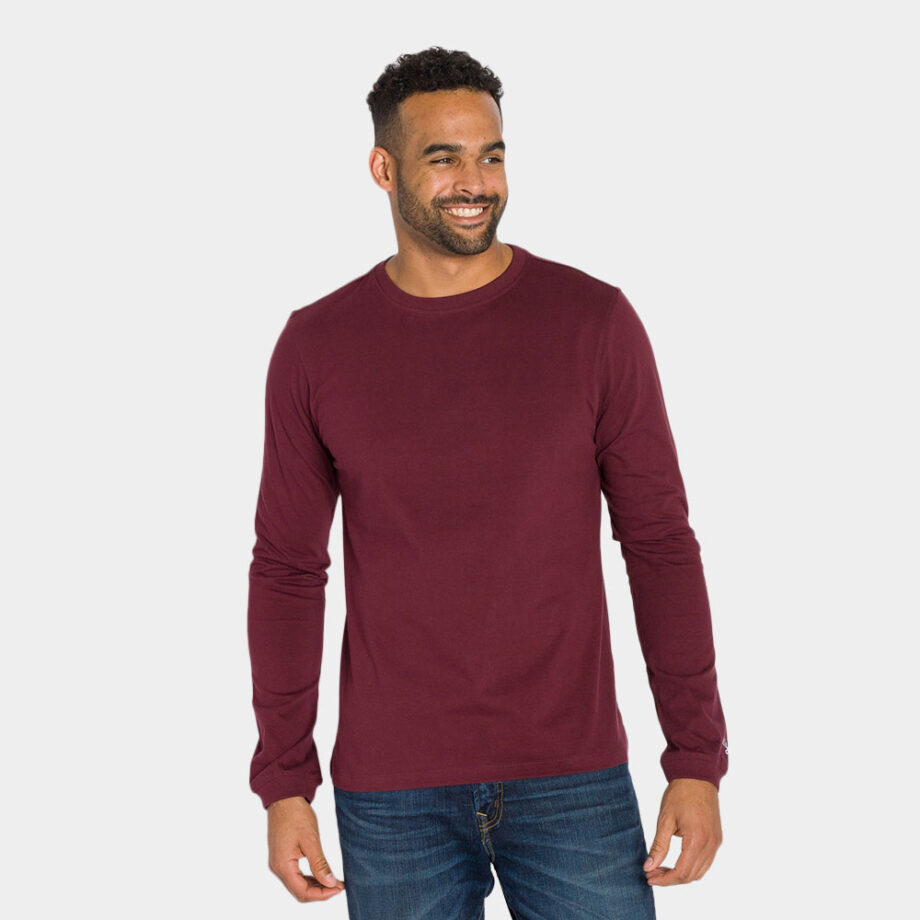 6/19
6/19
Through the invention of Filium, a technology that makes natural fabrics repel liquids, stains, and odours without affecting how soft and breathable they are, Ably was born; a line of clothing that drastically reduces carbon emissions and pollution.
Ably’s clothing is made of natural fabrics that are enhanced with Filium, resulting in clothes that are better for the environment and will reduce the amount of time you spend doing laundry; which in turn will reduce the amount of energy, CO2 emissions, and resources used in the laundering process.
Plus, all of Ably’s clothes are free from any nanoparticles or chemicals that can break down and leach into your skin or the environment. Their huge range of clothing includes everything you could ever need to build a stylish, versatile wardrobe such as shirts, tees, polos, shorts, pants, denim, hoodies, sweaters, pajamas, underwear, and socks.
Tentree
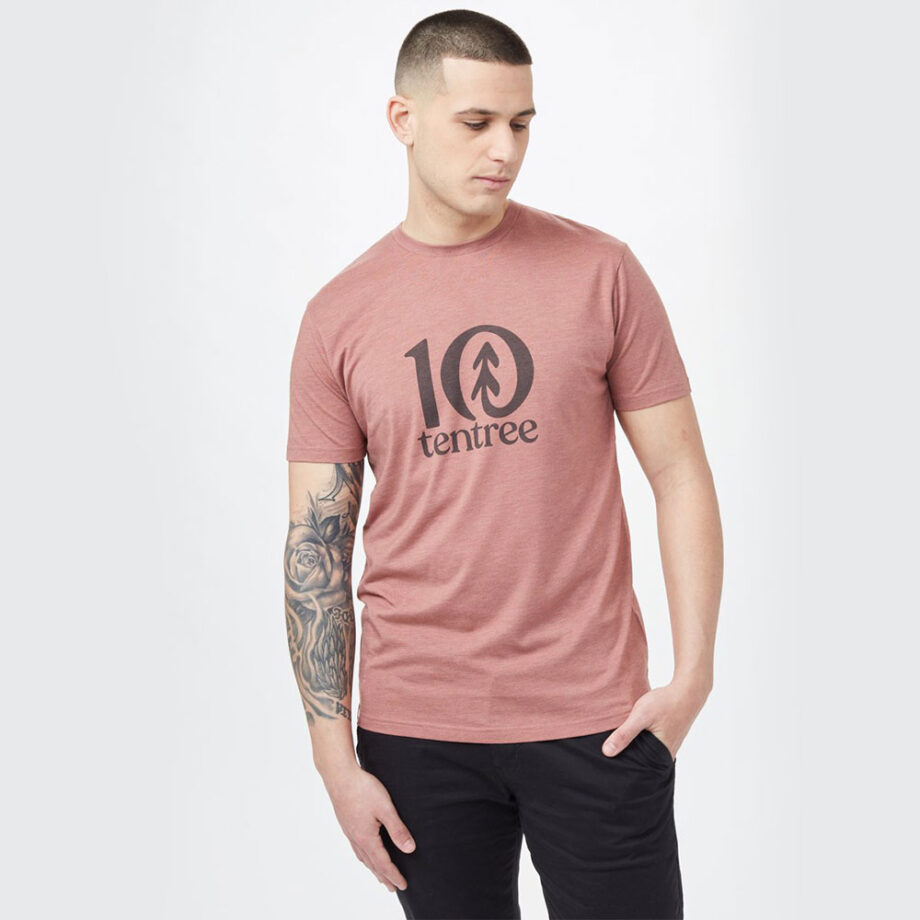 7/19
7/19
Everything Tentree do stems from how to do better by our planet—like planting trees; for every item purchased, Tentree will plant ten trees. Tentree do this because planting trees is one of the best ways to create a sustainable future. So far, they’ve planted over 50 million trees, and those trees have removed millions of tonnes of CO2 from the atmosphere, lifted entire communities out of poverty, and reforested over 5,000 hectares of land, but Tentree has no plans to stop; they’re on a mission to plant 1 billion trees by 2030.
However, Tentree is also constantly looking at innovative ways to make apparel with the smallest possible footprint and create more circular supply chains. For example, a Tentree sweatshirt is made with seventy-five percent less water than other brand’s sweatshirts. Committed to cutting down their water usage and carbon emissions, Tentree also only uses Tencel, recycled polyester, organic cotton, and hemp (eco-friendly materials) for their clothes.
Tentree is also proud to be a certified B-Corp; meaning they uphold the highest regard and respect for their employees, communities, and the environment. Tentree ensures that the factories they partner with properly compensate their workers with living wages, proper rest days, and access to essential insurance coverage. Their range of everyday essentials (tees, sweaters, joggers, etc.) are stylish, comfortable, and above all, ethical.
Pact
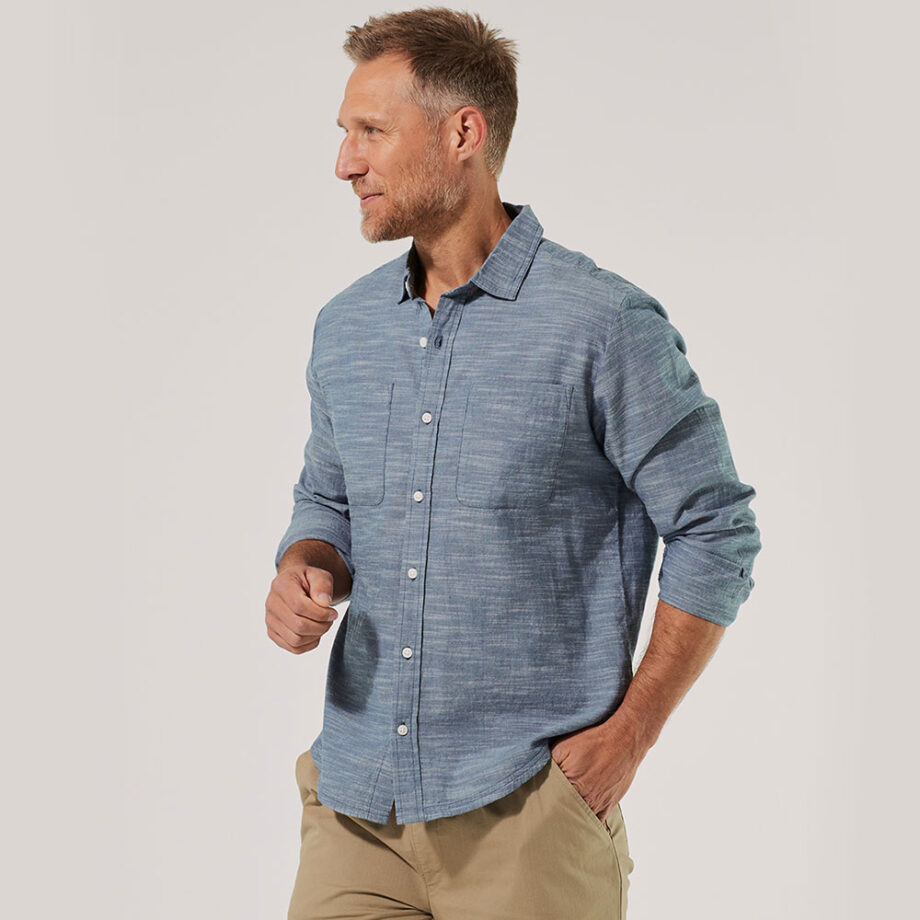 8/19
8/19
Pact’s super soft everyday apparel is made using non-GMO organic cotton in a transparent supply chain that improves the lives of farmers and workers. Pact only uses organic cotton because it sustains the health of soils, ecosystems, and people by using natural farming processes; which means no toxic chemicals and ninety-one percent less water than non-organic cotton.
Pact is also Fair Trade Certified, meaning that Fair Trade constantly ensures that the people making Pact products work in safe conditions, protect the environment, build sustainable livelihoods, and earn additional money to empower and uplift their communities.
With a large range of tops, shirts, pants, shorts, sleepwear, underwear, and socks, Pact’s clothing is comfortable, stylish, and completely sustainable.
United By Blue
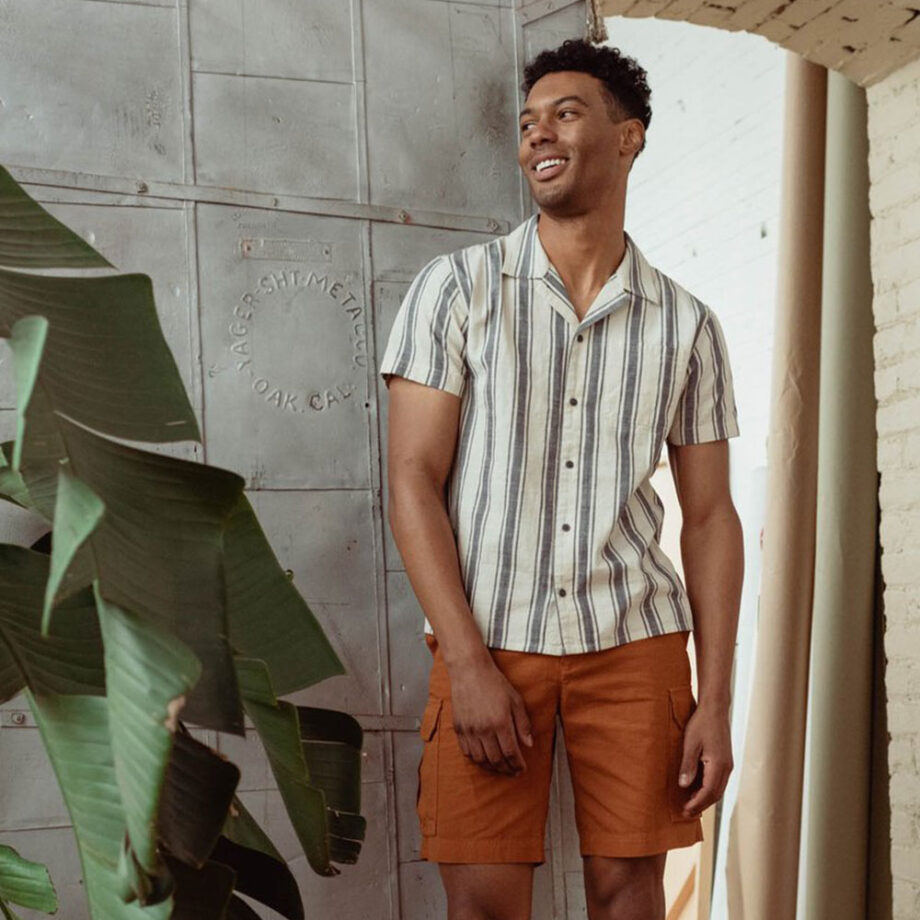 9/19
9/19
United By Blue is, understandably, saddened by the overwhelming amount of plastic in the ocean that’s polluting our beaches, choking our wildlife, and contaminating our drinking water. Therefore, for every product purchased, United By Blue removes one pound of trash from oceans and waterways.
Additionally, United By Blue only ever use sustainably-sourced materials for their products; which are created to last, because the best way to be a conscious consumer is to ultimately consume less. Not only are they committed to sustainable materials, United By Blue is also dedicated to ethical manufacturing and their zero-plastic policy.
A certified B-Corp, United By Blue has a great range of tops, bottoms, activewear, outerwear, loungewear, and swimmers that’re very stylish and versatile.
Faherty
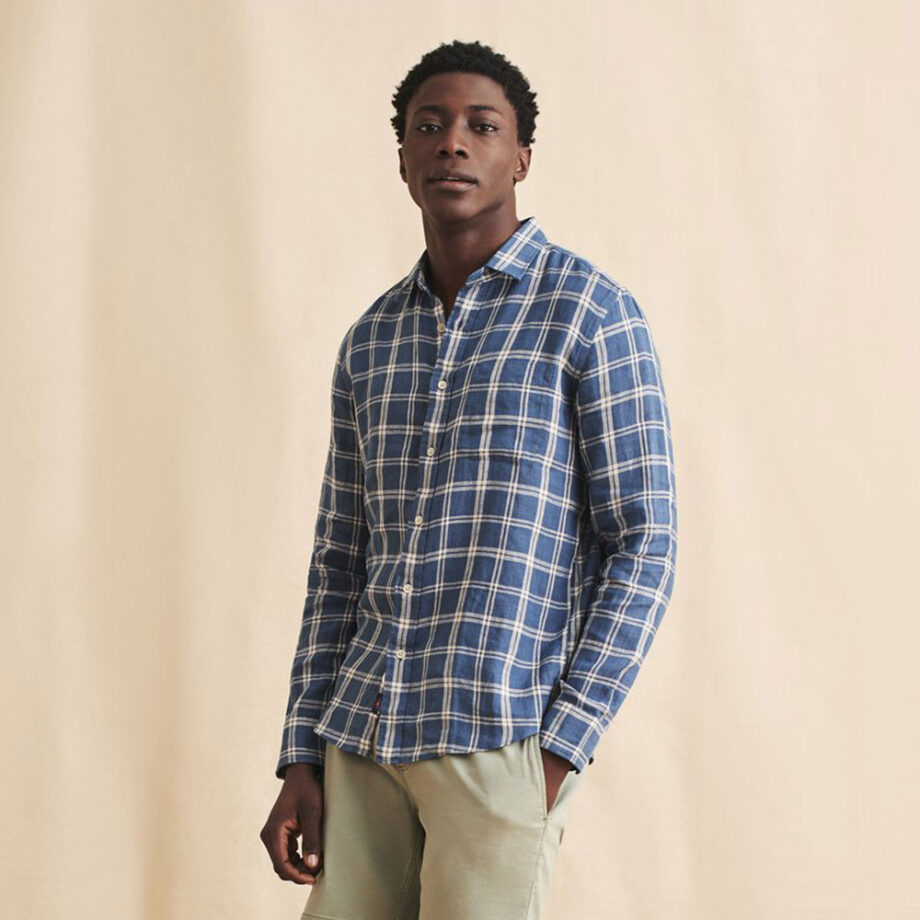 10/19
10/19
American family-run brand, Faherty, is dedicated to creating high-quality, sustainably-minded, feel-good clothing.
Seventy-seven percent of the materials they use are sustainable fibers like organic cotton, ethically sourced cashmere, recycled polyester, linen, and hemp. Faherty strives to use non-toxic dyes and water-efficient processes, and has committed to be ninety percent plastic-free by the end of 2021.
Faherty has a fantastic range of high-performance mens clothes like shirts, tees, polos, shorts, pants, hoodies, sweaters, and outerwear.
Taylor Stitch
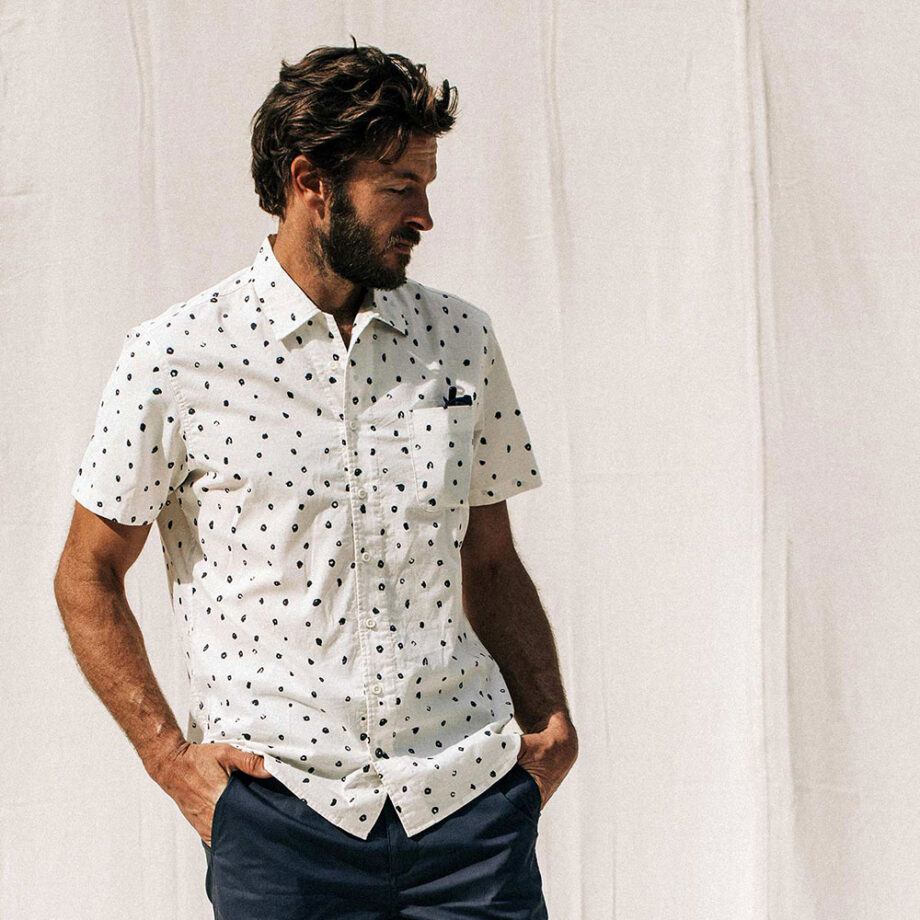 11/19
11/19
Born from a need for products without limitations, Taylor Stitch produces versatile clothing that can handle anything; chopping wood, surf sessions, snagging trout, heading to the office… Committed to building the best possible clothing while also pledging to limit their environmental impact, Taylor Stitch is one impressive brand.
Taylor Stitch has been built upon five commitments to ensure their environmental footprint is minimal. The first is ‘sourcing responsibly’, meaning all of Taylor Stitch’s garments are made from organic, recycled, or other sustainable components.
The second is ‘building responsibly’ meaning Taylor Stitch only partner with manufacturers who are also dedicated to building great products without sacrificing the environment. Third is ‘closing the loop’, a combination of Taylor Stitch making long-lasting, trend-proof clothes and their Restitch program; customers can exchange old garments for store credit so they can be repaired and re-used, rather than going into landfill.
Their final two commitments are ‘creating a community’ and ‘giving back’, meaning Taylor Stitch are proud to treat their customers as friends, and use their platform to support causes that truly make a difference in people’s lives through fundraisers, donations, and collaborations. Taylor Stitch has a huge range of sophisticated men’s shirts, knits, bottoms, denim, and outerwear that are made ethically and sustainably.
KOTN
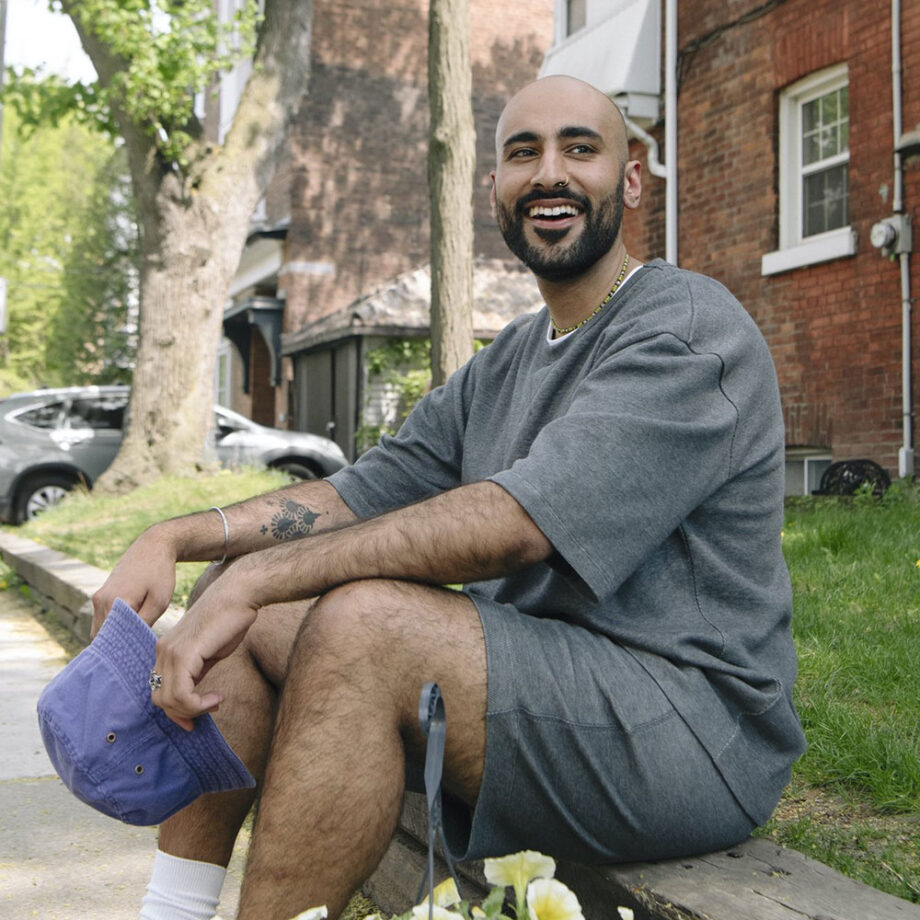 12/19
12/19
KOTN’s mission is to set the standard for conscious creation and consumption. Founded in 2015, KOTN cuts out the middleman with direct trade; they source their raw materials straight from the farmers. KOTN does this to provide their customers with fair prices that reflect the quality instead of the label, provide farmers with better prices and business practices and, provide transparency into how their partners conduct their business.
KOTN only ever use natural fibres for their clothing, but they also believe the future is organic; therefore they’ve pledged that within the next five years all of their natural fibres will be certified organic. Plus, KOTN is constantly working to ensure fair trade and labour practices for all employees and farmers they partner with.
The range of clothes KOTN has are what they call ‘better basics’, designed to simplify your every day. Built to last with natural fibres and ethically made, KOTN have pretty much everything – tees, shirts, sweaters, jackets, pants, shorts, swimmers – your wardrobe could ever need.
ASKET
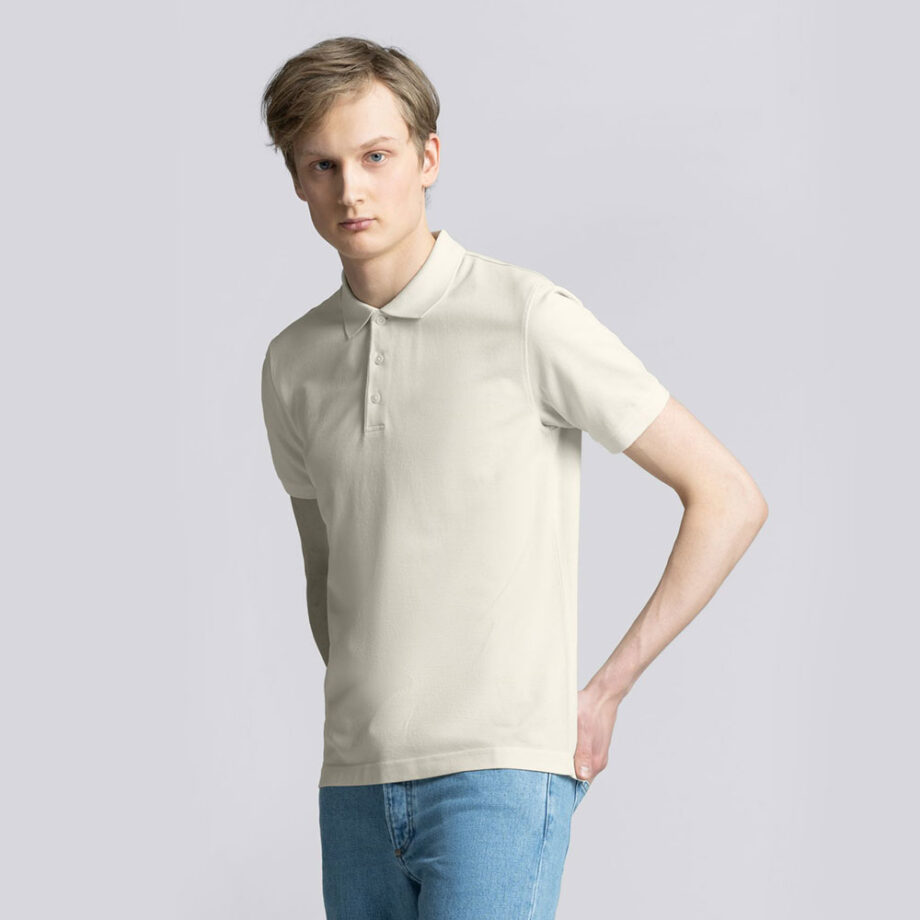 13/19
13/19
‘The pursuit of less’ is ASKET’s motto. The brand believes that true progress is reduced wardrobes, which is why ASKET don’t design for seasons, they create for forever, and when something is broken, they mend it.
ASKET only use the finest natural fibres for their clothing range, and partner exclusively with skilled and responsible mills and manufacturers. Plus, ASKET has complete transparency; they don’t believe in ‘sustainability’ as every single garment has an impact; even really well made garments.
So, ASKET prefers the term ‘responsibility’ as they provide customers with exactly how much CO2, water, and energy is used to produce all of their garments in the hopes that customers will become more responsible and aware of the impact fast fashion has on the environment.
ASKET has a permanent collection of basics – tees, shirts, shorts, pants, knitwear, outerwear – that are made in the most eco friendly way possible, and are incredibly well-made meaning they’ll last a lifetime; they won’t end up in landfill.
prAna
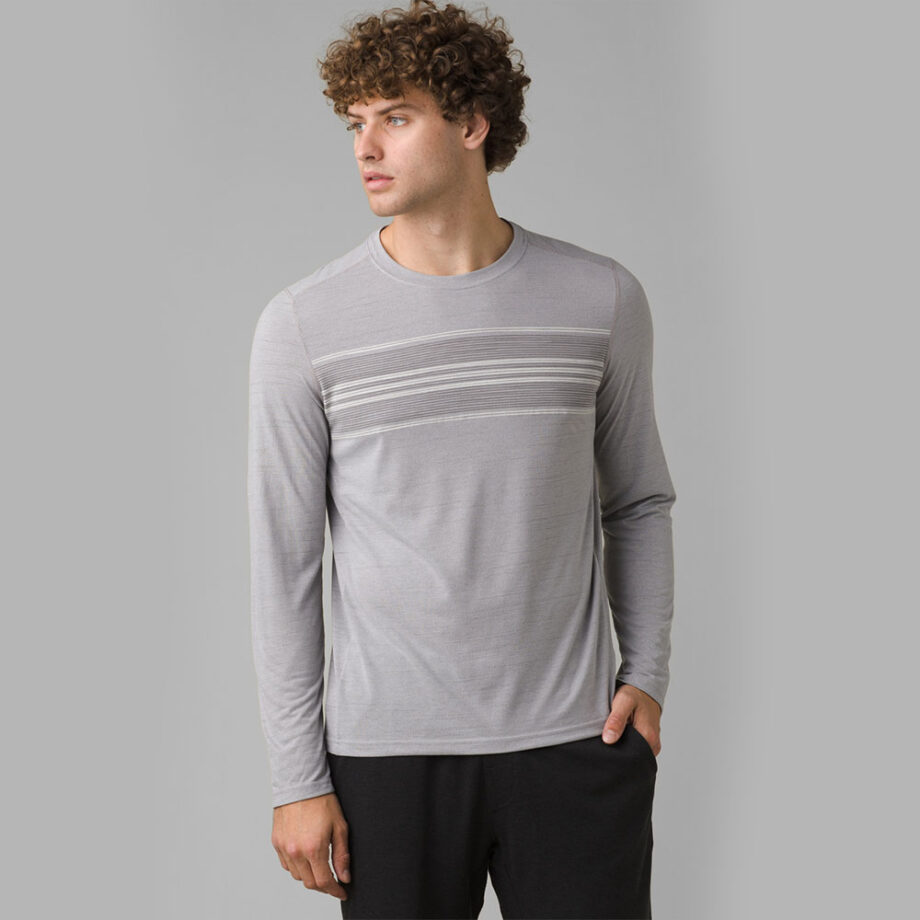 14/19
14/19
Founded in California in 1992, prAna is committed to creating high-quality sustainable clothing, as well as social responsibility, inclusivity, and continually improving. prAna only use organic cotton, Tencel, and hemp for their clothing, and their supply chain has been one hundred percent free of harmful viscose fibers and generic rayon since 2015.
prAna is also committed to taking climate action, and has pledged to reduce their greenhouse gas emissions by thirty percent by 2030. Additionally, prAna is a Fair Trade certified brand, meaning prAna ensures safety measures are put in place to protect the physical and mental health of their employees as well as the employees of the factories that manufacture their clothing.
They have a huge range of basics, smart-casual clothing, activewear, and swimwear that are fashionable and high-quality making prAna a very impressive sustainable fashion brand.
Nudie Jeans
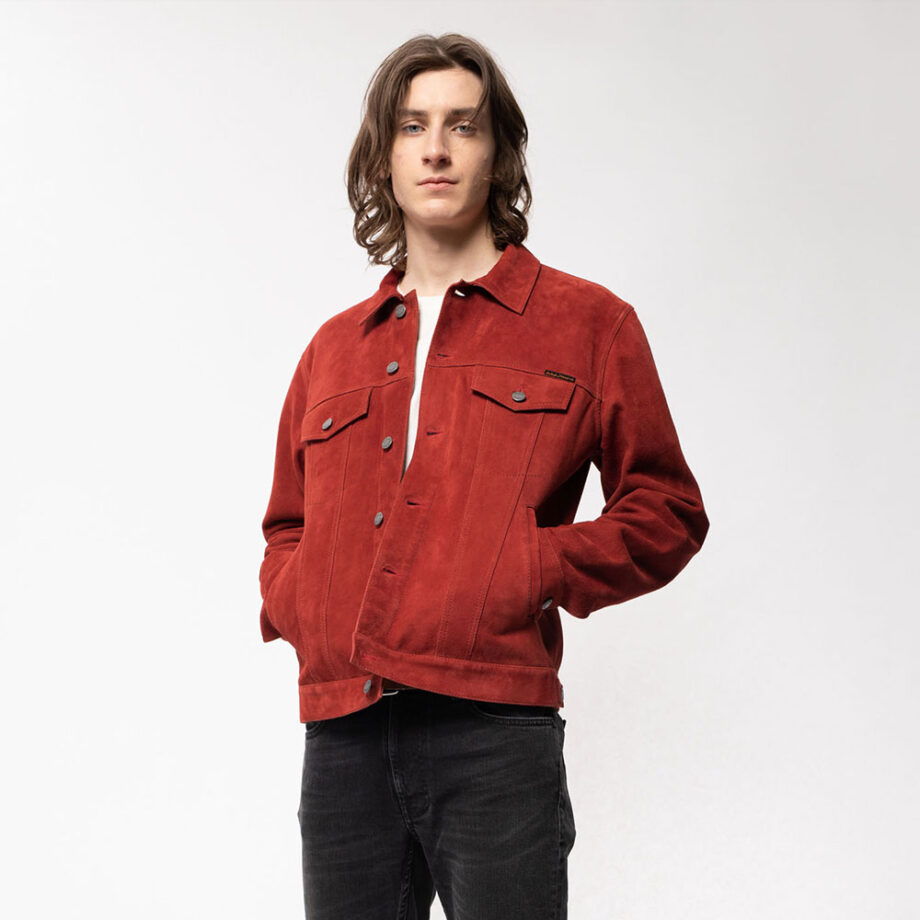 15/19
15/19
Taking a practical approach to sustainability, Nudie Jeans, for the second year in a row, have mapped their entire supply chain’s water data and CO2 emissions, and have then invested in carbon offsetting to cover the business’s full emissions. In 2020, just over ninety-eight percent of Nudie Jeans’ products were sustainable.
All of Nudie Jeans’ denim is crafted from organic cotton, and the brand runs a ‘reuse and repair’ program; Nudie Jeans will repair or reuse jeans that have reached the end of their lifespan, so the denim isn’t thrown into landfill causing more damage to our planet.
As their name suggest, Nudie Jeans mostly produces jeans, but they also have a small range of denim shorts and jackets, as well as cotton tees and knitwear.
Made Trade
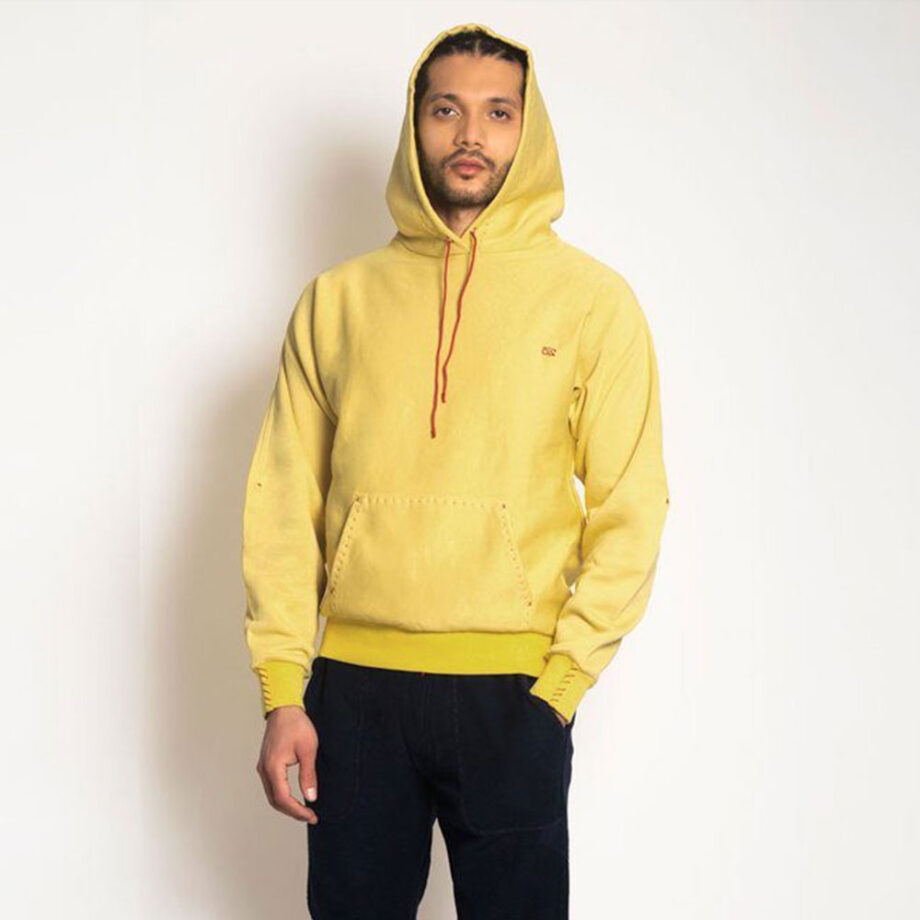 16/19
16/19
Made Trade believes in a number of things; fair wages above profits, sustainability above mass production, quality craftsmanship above mindless consumption, and transparency above everything. Made Trade hand select only the most beautifully-designed, ethically-made goods that put people and the planet first.
All makers and artisans employed by Made Trade are paid a living wage and are provided safe and healthy working conditions. Plus, only eco-friendly practices are used in the manufacturing process. All products are made with earth-friendly materials; either responsibly sourced, harvested, recycled or upcycled, and are intentionally designed to create a minimal negative environmental impact.
Made Trade has a small range of menswear that’s incredibly cool. They have playful prints and classic colour-blocked shirts and tees crafted from organic cotton, and casual joggers and activewear that’ll keep you feeling comfortable.
Patagonia
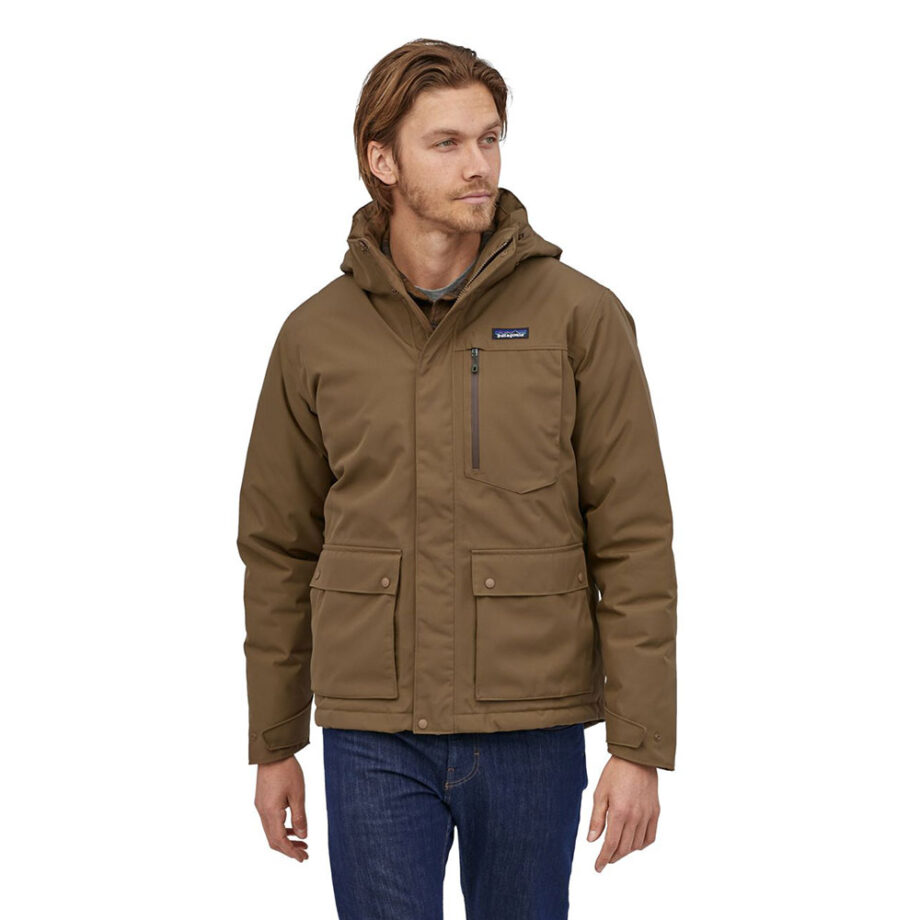 17/19
17/19
Patagonia appreciates that all life on earth is under threat of extinction, therefore they constantly aim to use the resources they have—their business, their investments, their voice, and their imaginations—to do something about it.
Patagonia believes that one of the most direct ways to limit ecological impacts is with goods that last for generations or can be recycled so the materials in them remain in use and not in landfill; which is exactly why Patagonia strives to produce durable and long-lasting garments. However, Patagonia also strives to make these garments in a sustainable way.
Plus, Patagonia’s pledged that one percent of all of their sales (which may not seem like a lot, but oh boy, it is) will go to the preservation and restoration of the natural environment. Patagonia has jackets, vest, tops, and bottoms that are perfect for outdoor adventures such as hiking.
Icebreaker
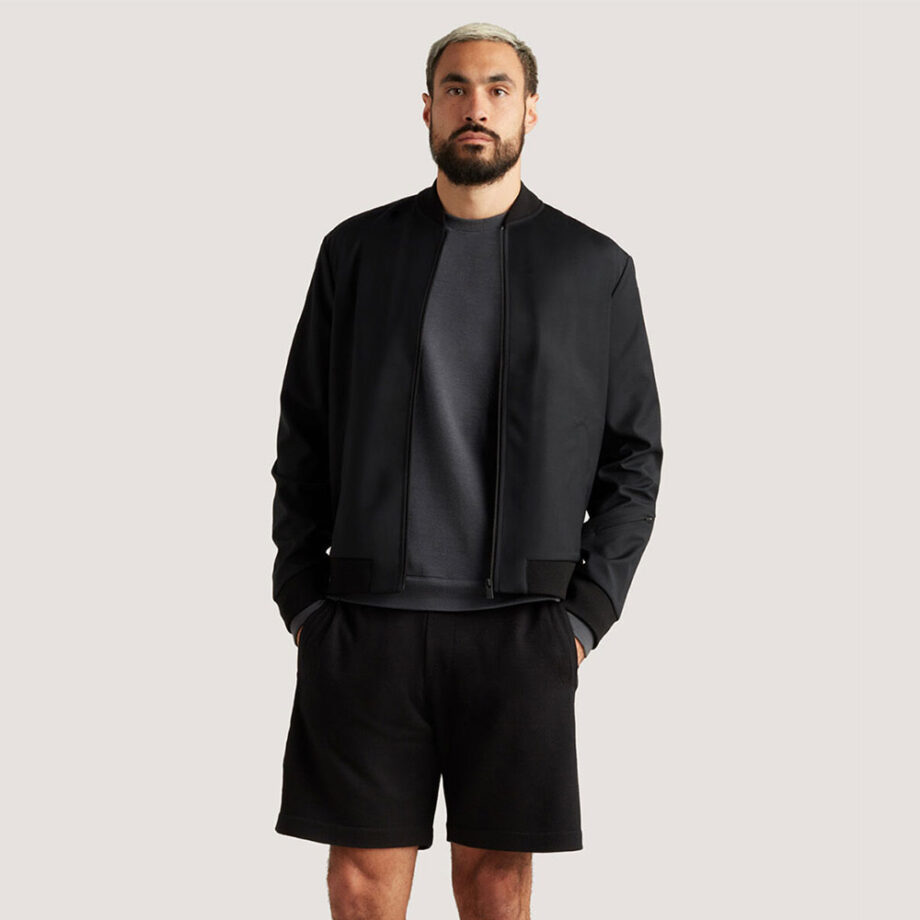 18/19
18/19
Sustainability isn’t just a feature of Icebreaker’s products, it’s in the values and design of their business. Dedicated to providing natural performance alternatives to synthetic based apparel to create a healthier more sustainable future for our species and the planet, Icebreaker aims to be completely plastic free by 2023.
Currently, ninety-one percent of Icebreaker’s garments are made with plastic free fibres; either merino wool or plant-based fabrics. In the meantime, Icebreaker is constantly trying to develop bio-based alternatives to plastic/synthetic fibres such as nylon or elastane.
Icebreaker is also completely transparent about their processes, and release a yearly in-depth report to keep them accountable while they create eco-friendly clothes and do so with ethical practices. Icebreaker’s range of men’s clothes are made with the finest quality merino wool, with the result being naturally lightweight, odour-resistant, and breathable tops, bottoms, and outerwear that’ll keep you feeling comfortable all day.
Arc'teryx
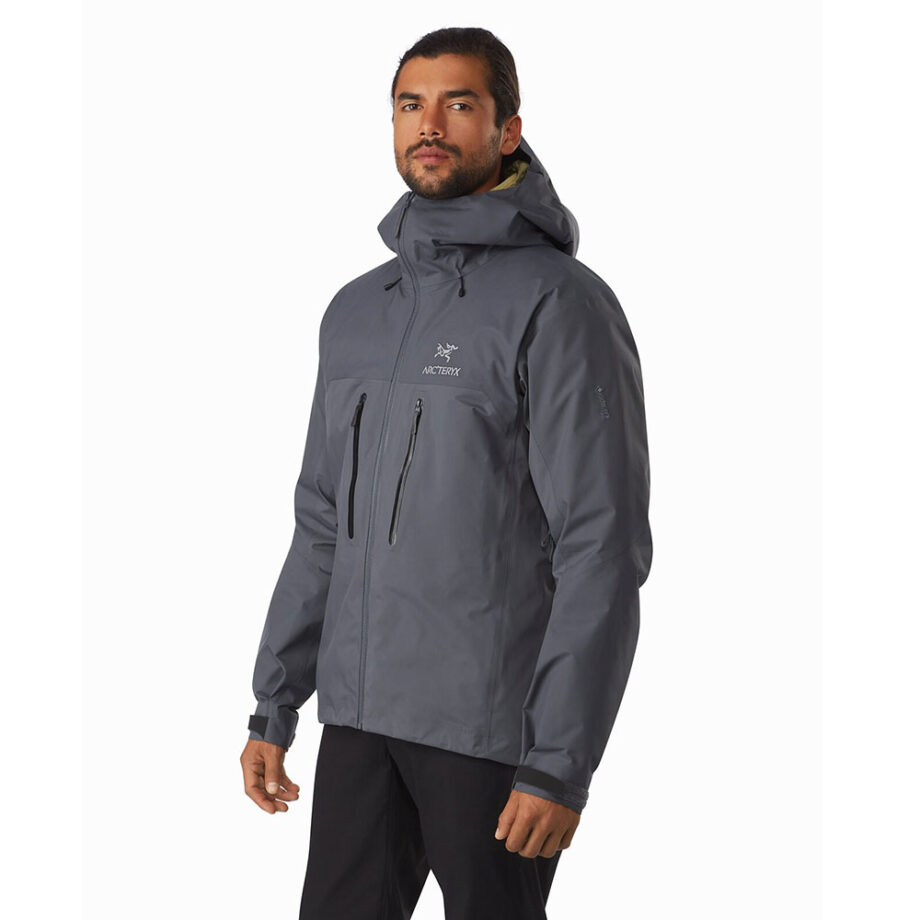 19/19
19/19
Arc’teryx believe that building products to last is the most powerful way to minimise impact. Therefore, they create clothing that’ll perform for its intended use, and only use proven materials that endure and wear well over time. Plus, Arc’teryx has perfected a timeless aesthetic that remains contemporary, and has a lifetime guarantee on all of their garments.
Plus, Arc’teryx are Fair Trade certified, meaning they support their manufacturing facilities giving its workers rights for their health and safety as well as living wages. While, Arc’teryx’s range of clothes are mostly designed for outdoor activities like hiking, rock climbing, and skiing, they do have a range of ‘everyday’ clothes including t-shirts, polos, vests, jackets, shorts, and pants.
